Table of Contents
BASCON – A Festival Beyond The Ordinary At Basar
“As you are one of the pioneers in Travel Blogging we are of the belief that there might be a few good stories hidden for you at Basar”. “We shall like to invite you to Basar during the BASCON festival or otherwise.”
This was what the invitation to the BASCON festival to be held in Basar, Arunachal Pradesh, India said, and stories we found in aplenty at the BASCON, a festival beyond the ordinary and also in Basar. We were glad that we made it to the festival as the experience was something unique and beyond compare.
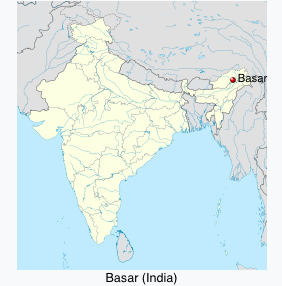
It was our first visit to the state of Arunachal Pradesh and we were excited to explore this unexplored part of Norteast India.
The excitement heightened after we alighted at Dibrugarh Airport in Assam, en-route to Basar. After a fascinating ferry crossing at Bogibeel, and a drive in pitch darkness and heavy rain from Silapathar we reached Basar, late at night, oblivious to the sheer natural beauty that ensconced us owing to the cover of darkness.
 We woke up in the morning to glimpses of a magical land. Green fields covered by wisps of white clouds, mountains in the background and birds singing their hearts out heralded our first morning in Basar.
We woke up in the morning to glimpses of a magical land. Green fields covered by wisps of white clouds, mountains in the background and birds singing their hearts out heralded our first morning in Basar.
Basar and BASCON were waiting to happen and held the promise of some great times.
What is The BASCON Festival
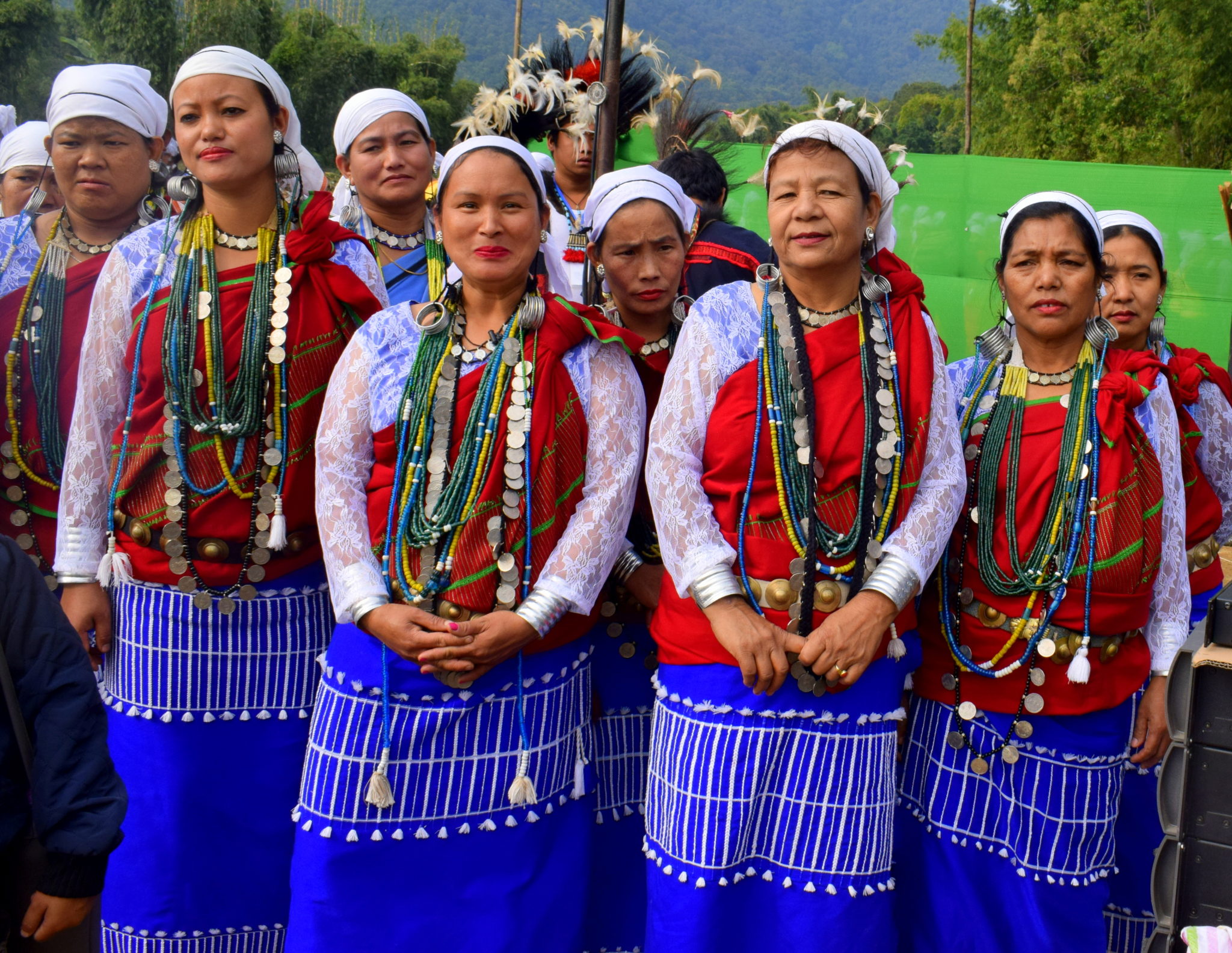
The reason that we were in Basar was the BASCON festival. BASCON expands as Basar Confluence and takes its name from the confluence of the two rivers, Hie and Kidi which meander through the hills to finally meet at Basar.
Arunachal Pradesh is a state which is known for its music and adventure festivals. People from all over the country and the world flock to the state to attend these festivals and experience music and the traditional culture. Some of the popular festivals of North East India include the Hornbill Festival, Adventure@Mechuka, Orange Festival, Ziro Festival of Music, Mopin Festival, and of course BASCON Festival. Out of all these festivals, however, the BASCON Festival stands out with its unique features.

The BASCON festival is a celebration of contemporary as well as traditional and folk art, a showcase of the unique culture of the Galo tribe through traditional dance and music, it is a festival of tribal food and tribal sports.
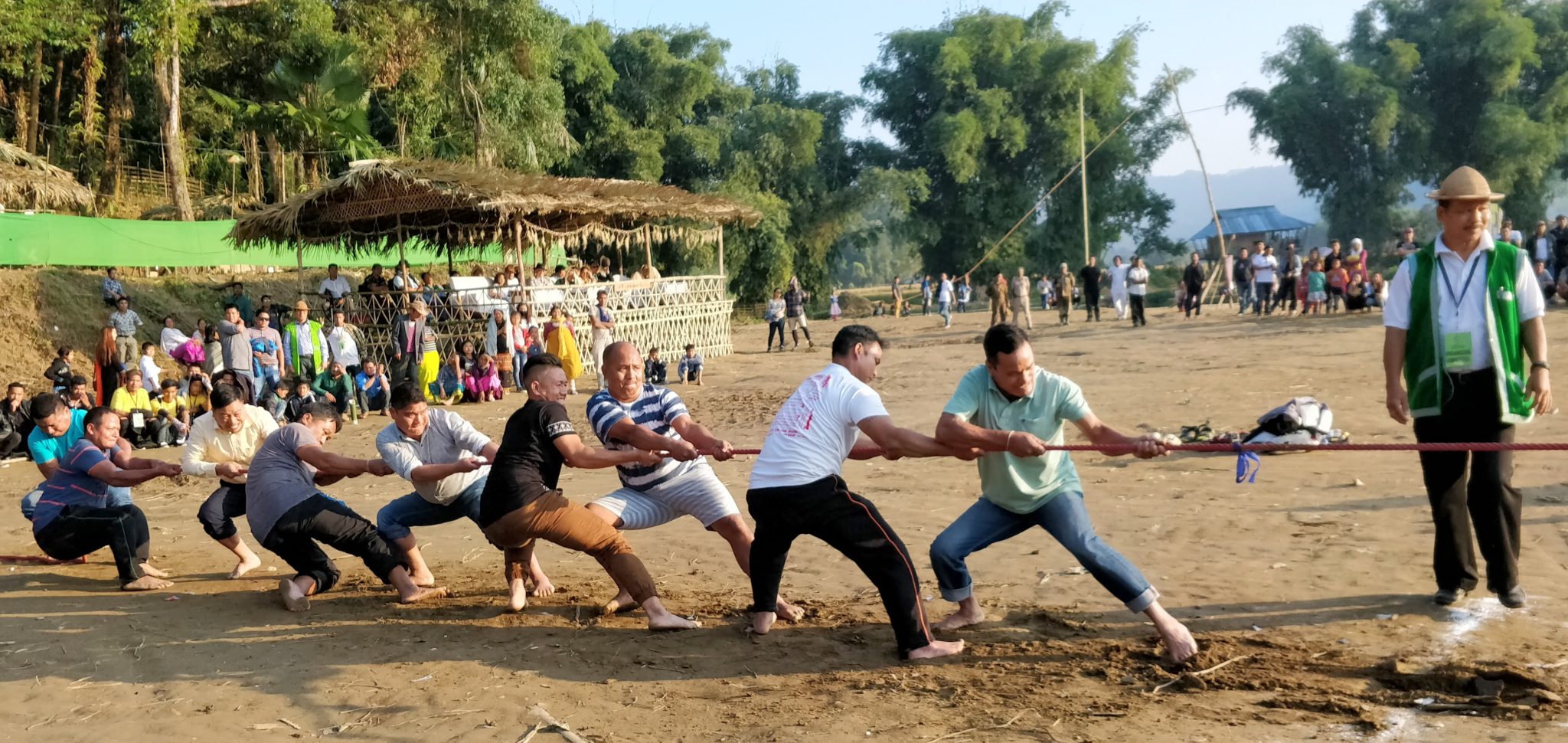
Above all it is a confluence of hearts of the Galo people and those of the visitors to the festival.
The Highlights of BASCON 3.0, A Cultural Extravaganza
Watch our video to experience some of the excitement of BASCON 3.0:
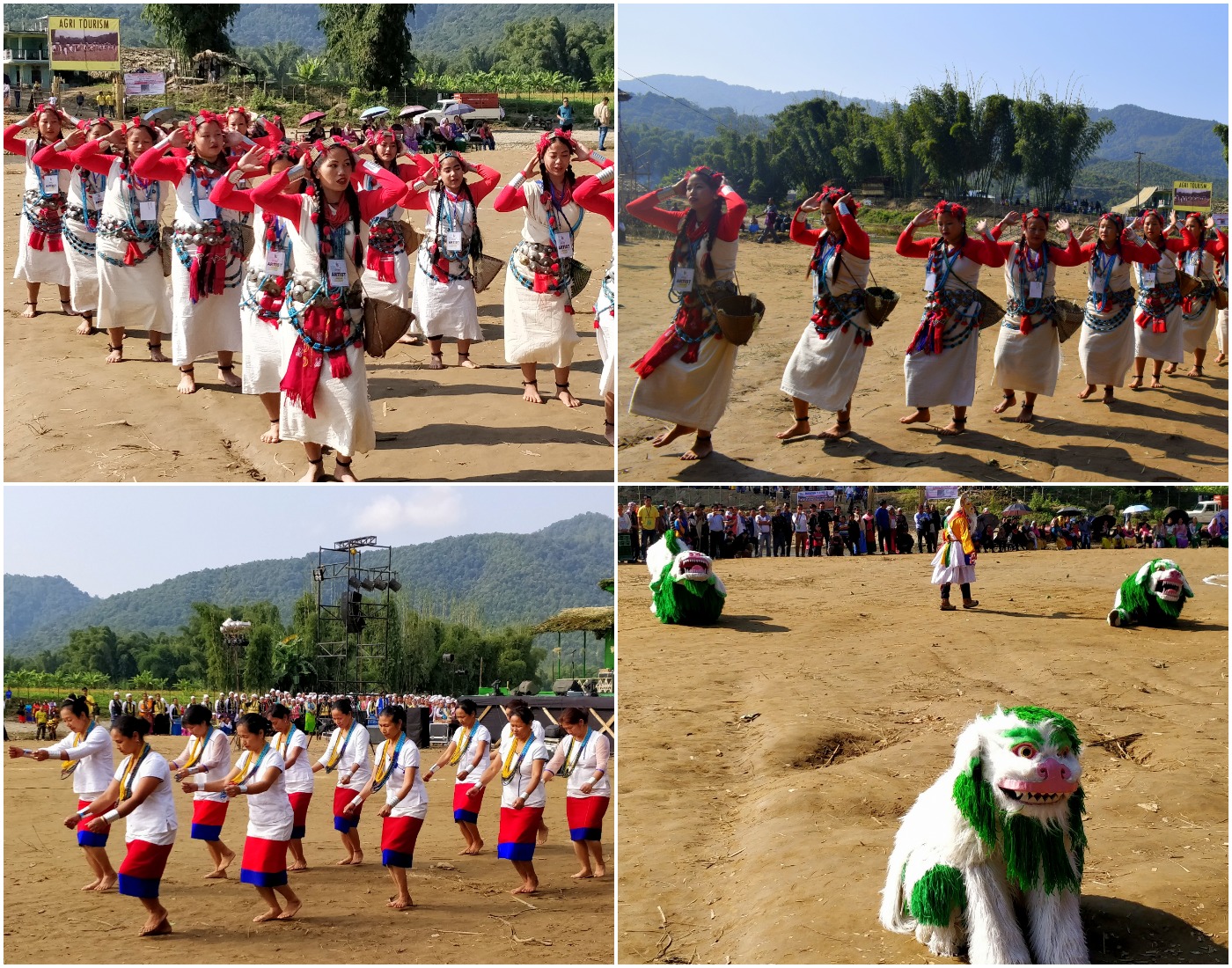
BASCON 3.0 – Basar Confluence Festival was a sheer indulgence for the senses. From food to sports and adventure, from traditional dances and music to theatre, from art and storytelling to an immersive village experience, BASCON 3.0 had it all. The festival was spread over 3 days and was an extravaganza of culture in the real sense. We swayed with the hypnotic Galo music and our feet tapped on their own volition in step with the dancers doing the warrior dance. As darkness fell on festival grounds, the stage erupted with electrifying music from the local bands and the crowds went hysterical and so did we!
Some of the highlights of the 3-day BASCON festival that have made an indelible mark on our hearts and mind is something we would like to share with our readers.
Nyda Parik, Wedding Dance
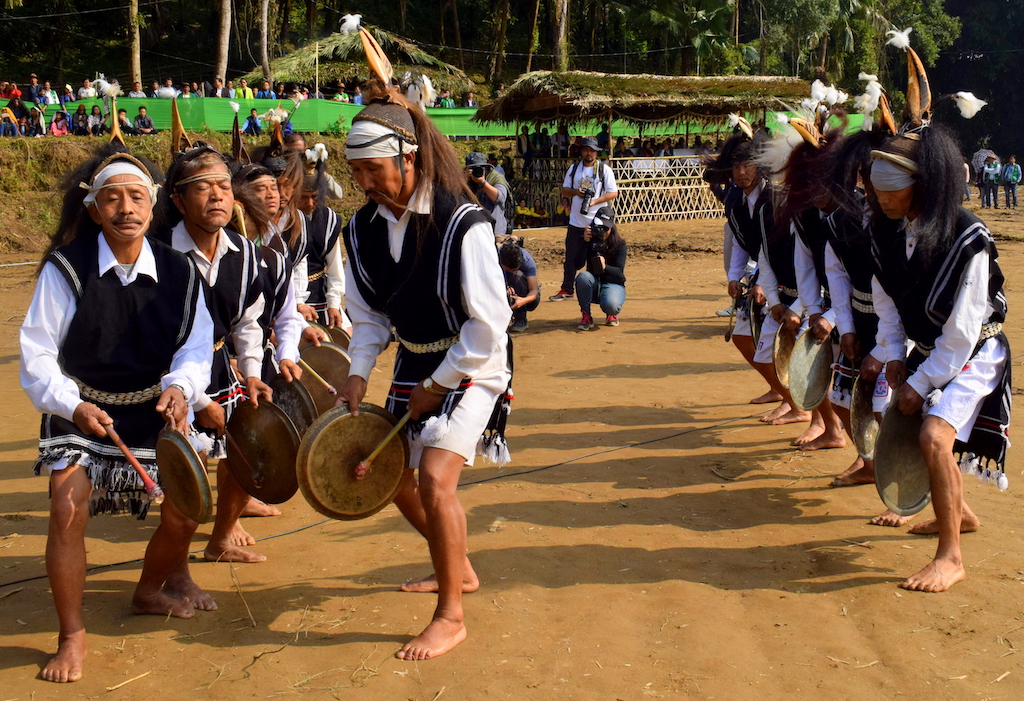
The clang of metal plates smote the calm that had settled on the banks of the confluence of the two rivers Hie and Kidi. Waves of excitement descended on the onlookers as the dancers dressed in black and white emerged onto the grounds with rhythmic steps that kept time with the clang of the plates. Their spectacular headdresses flowing behind them, the dancers whipped up a frenzy that was infectious. The Nyda Parik is a dance performed by the menfolk during a marriage in the Galo tribe.
Mega Galo Dance
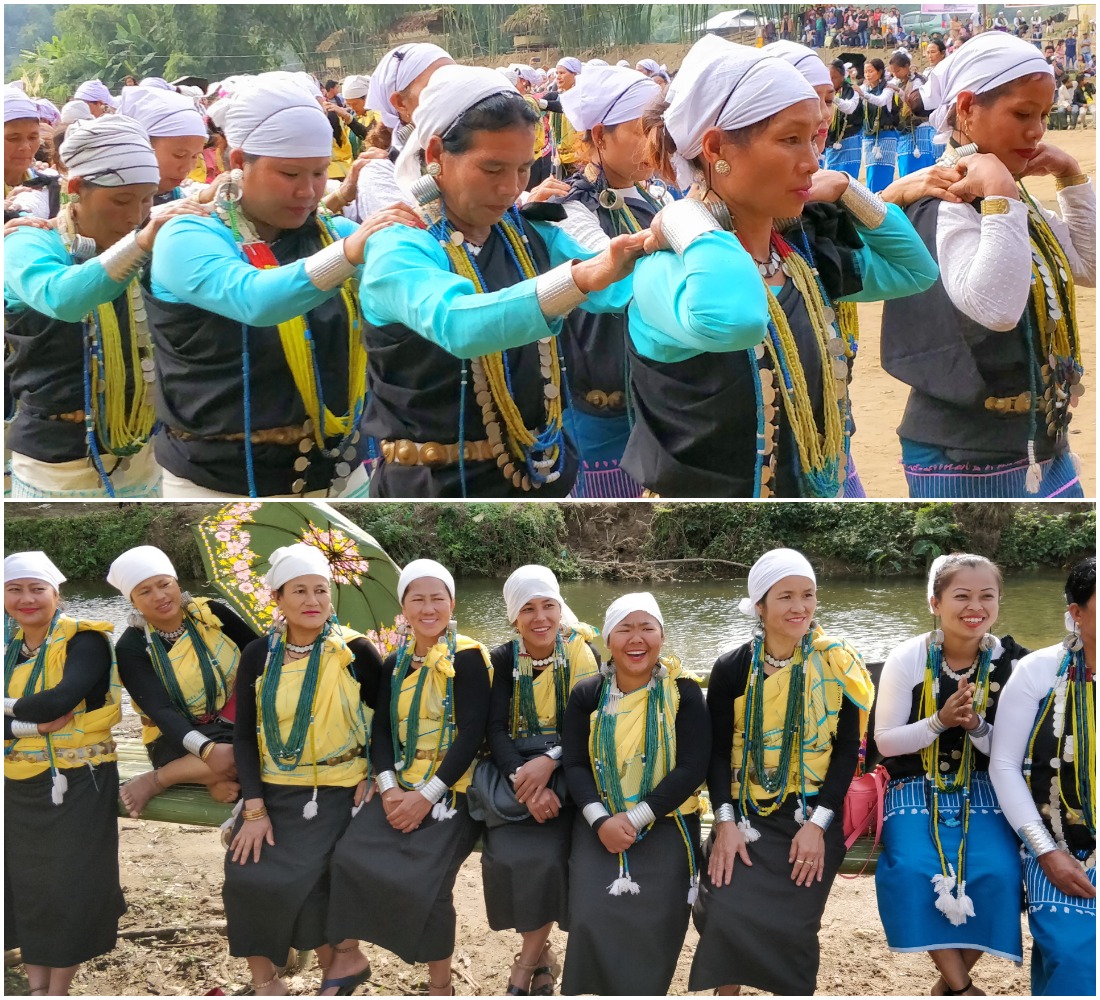
It was as if multiple rainbows had descended on the earth.
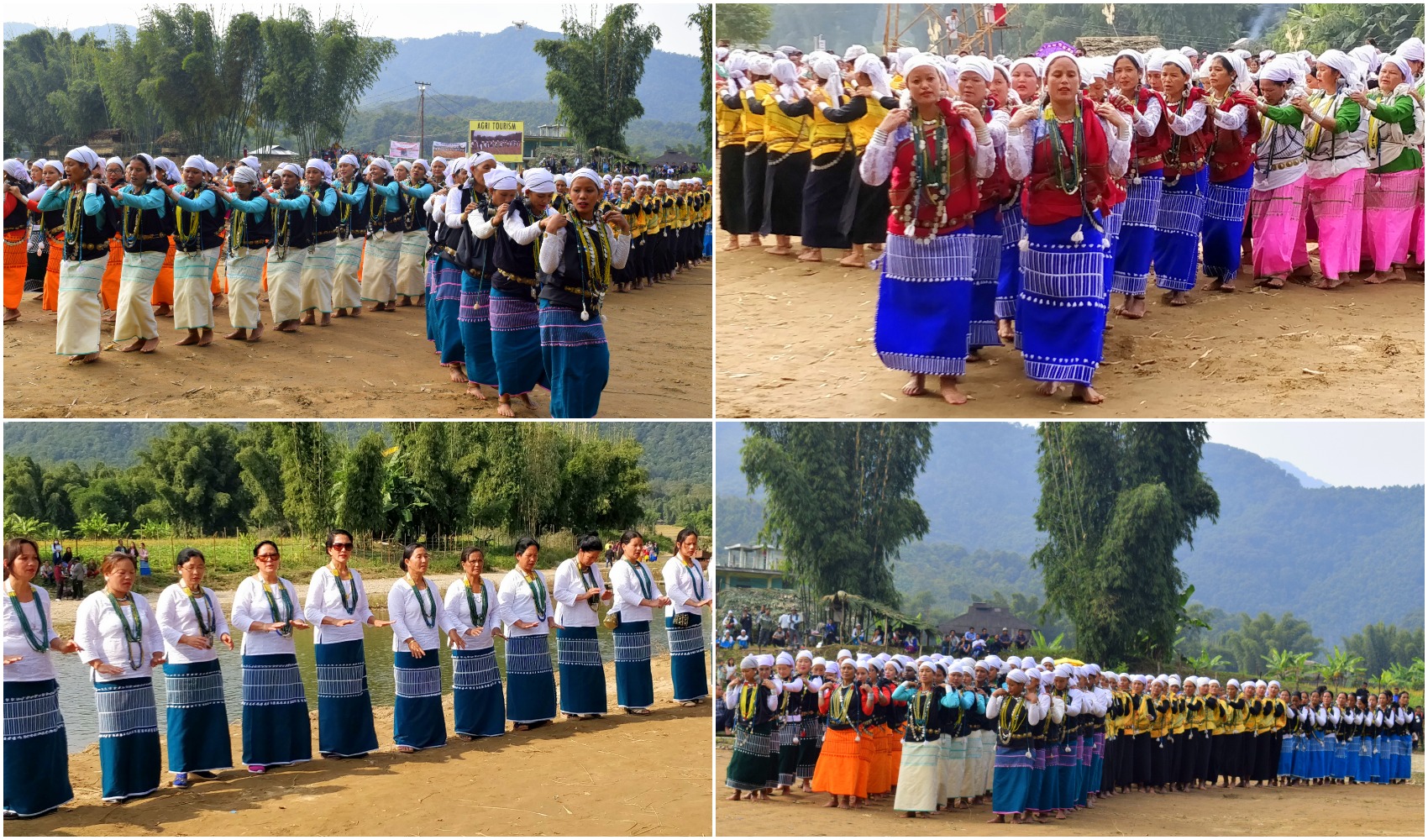
The mega Galo dance which was easily one of the most colourful events of the festival had the attention of everyone riveted.
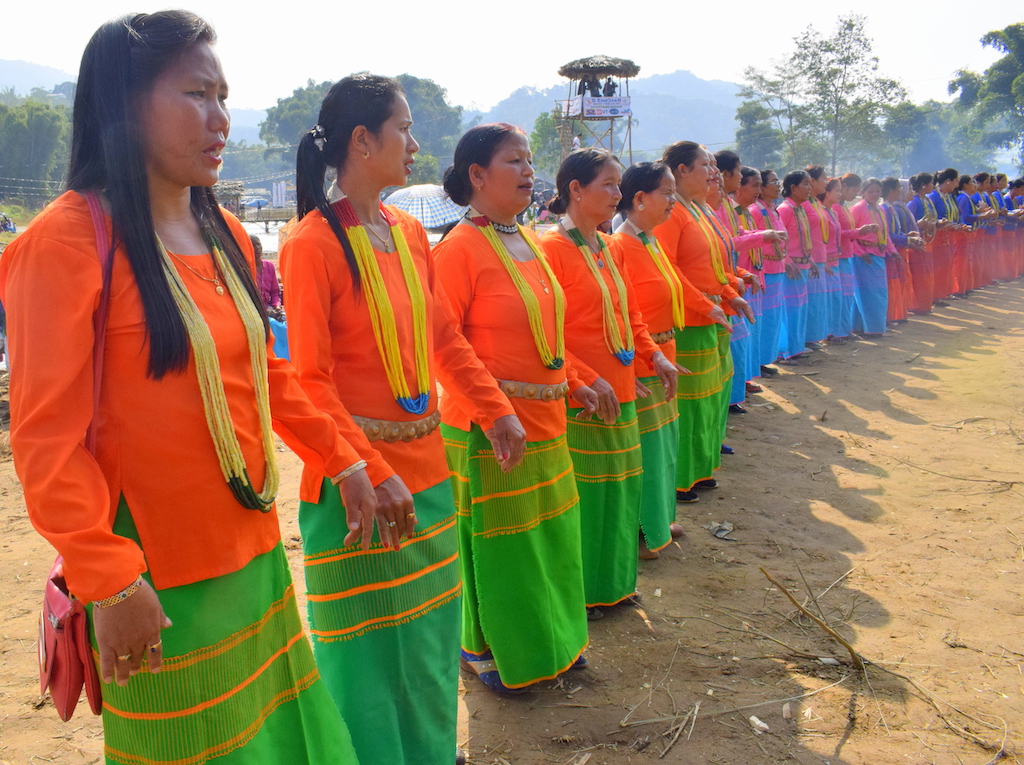
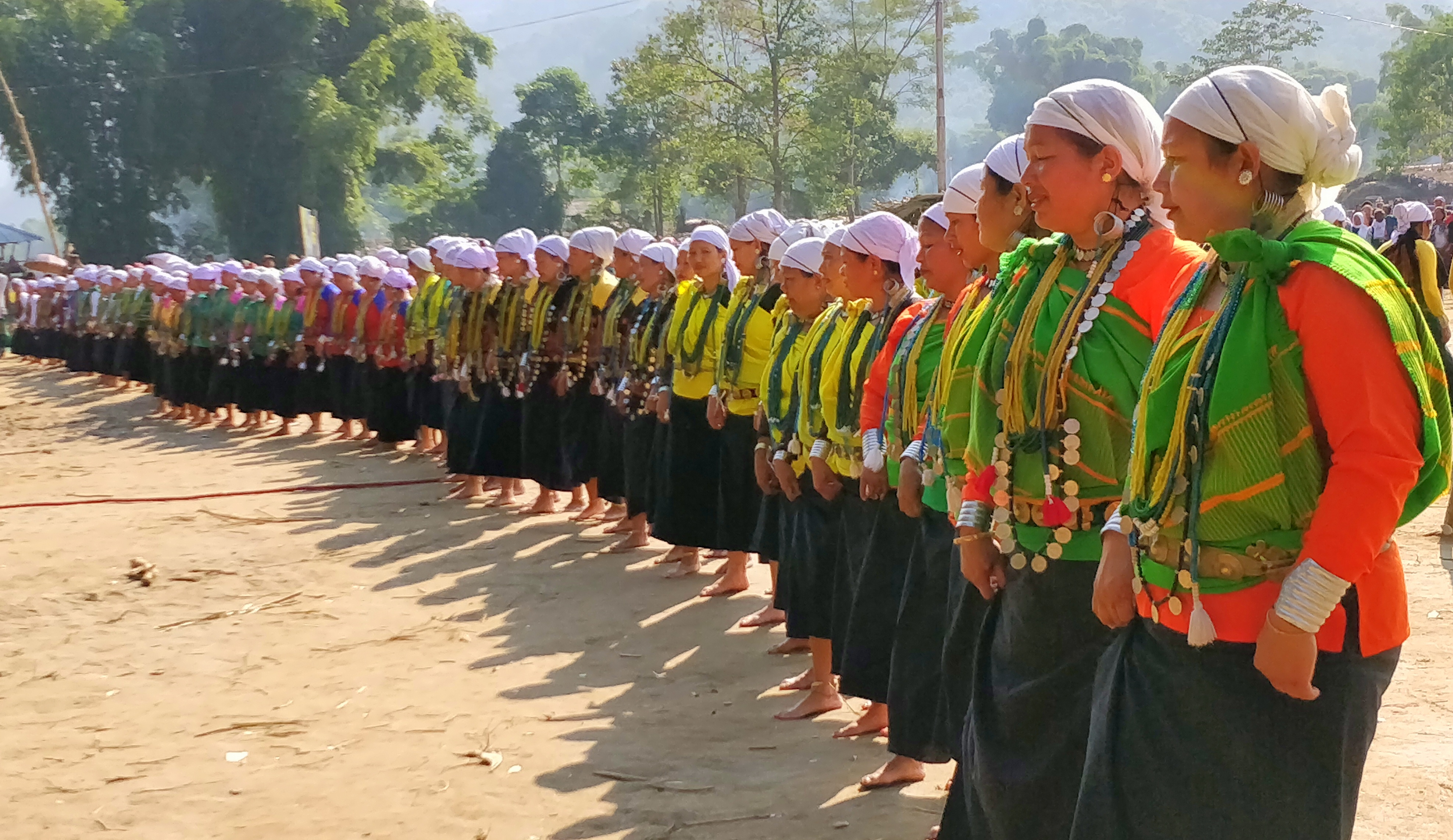

It was a scintillating display of grace, synchronisation, and teamwork as hundreds of female dancers dressed in beautiful and colourful traditional dresses sketched a human tapestry on the grounds.
Mopin Festival Showcase
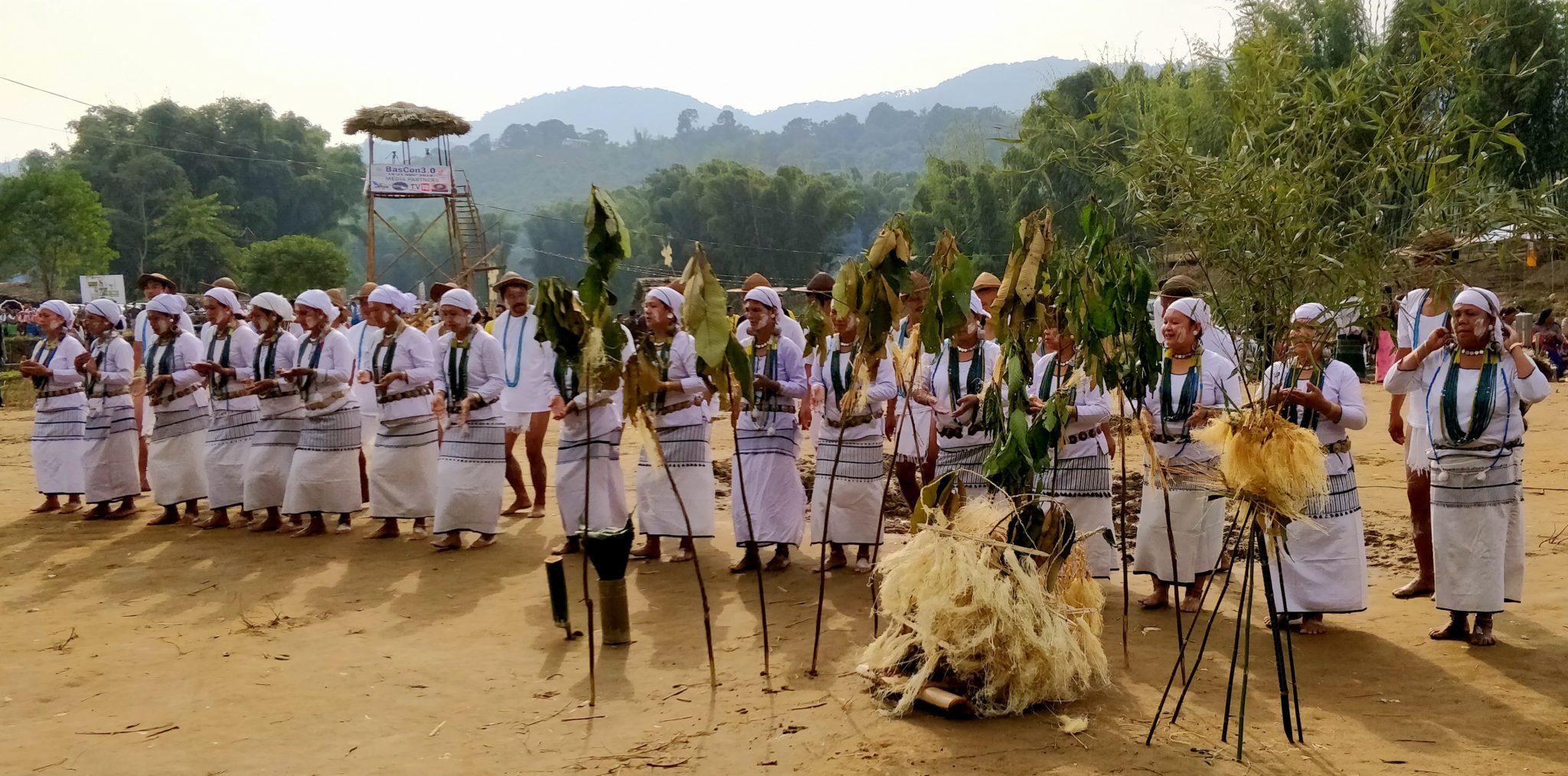
The Mopin festival is a very important festival and celebration for the Galo tribe of Arunachal Pradesh. It is a festival that celebrates the agricultural harvest and takes place in March-April depending on the traditional Galo calendar. The main Galo deity that is worshipped during the Mopin festival is Mopin Ane, a Godess similar to Godess Lakshmi. The festival is celebrated to usher in happiness and prosperity and drive away the effects of evil spirits.
Though BASON was being held in the month of November, we were treated to some glimpses of how the Mopin festival is celebrated.
All eyes turned to the river as a raft bearing the”deities” arrived on the banks of the river. The priest and his entourage received the deities who were then honoured and worshipped in a traditional way to the accompaniment of chants.
Bihu Dance
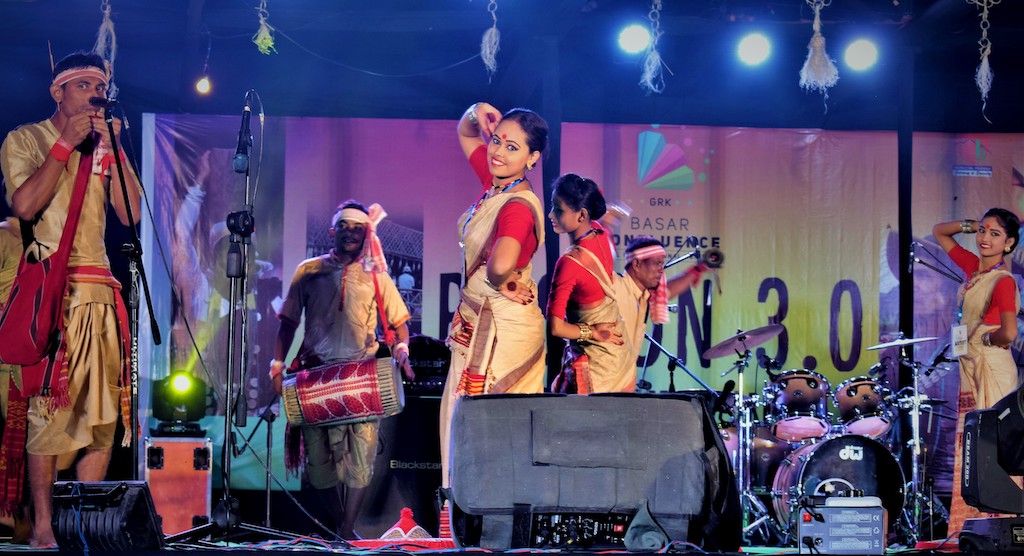
The BASCON was not restricted to only performances of Galo culture but also had performances from many other tribes and states of the North-East India. One of the most charming of these performances was the signature dance of Assam called the Bihu. The young men and women enthralled us with their energy and enthusiasm as they set the stage on fire with a beautifully choreographed dance.
Lion Dance
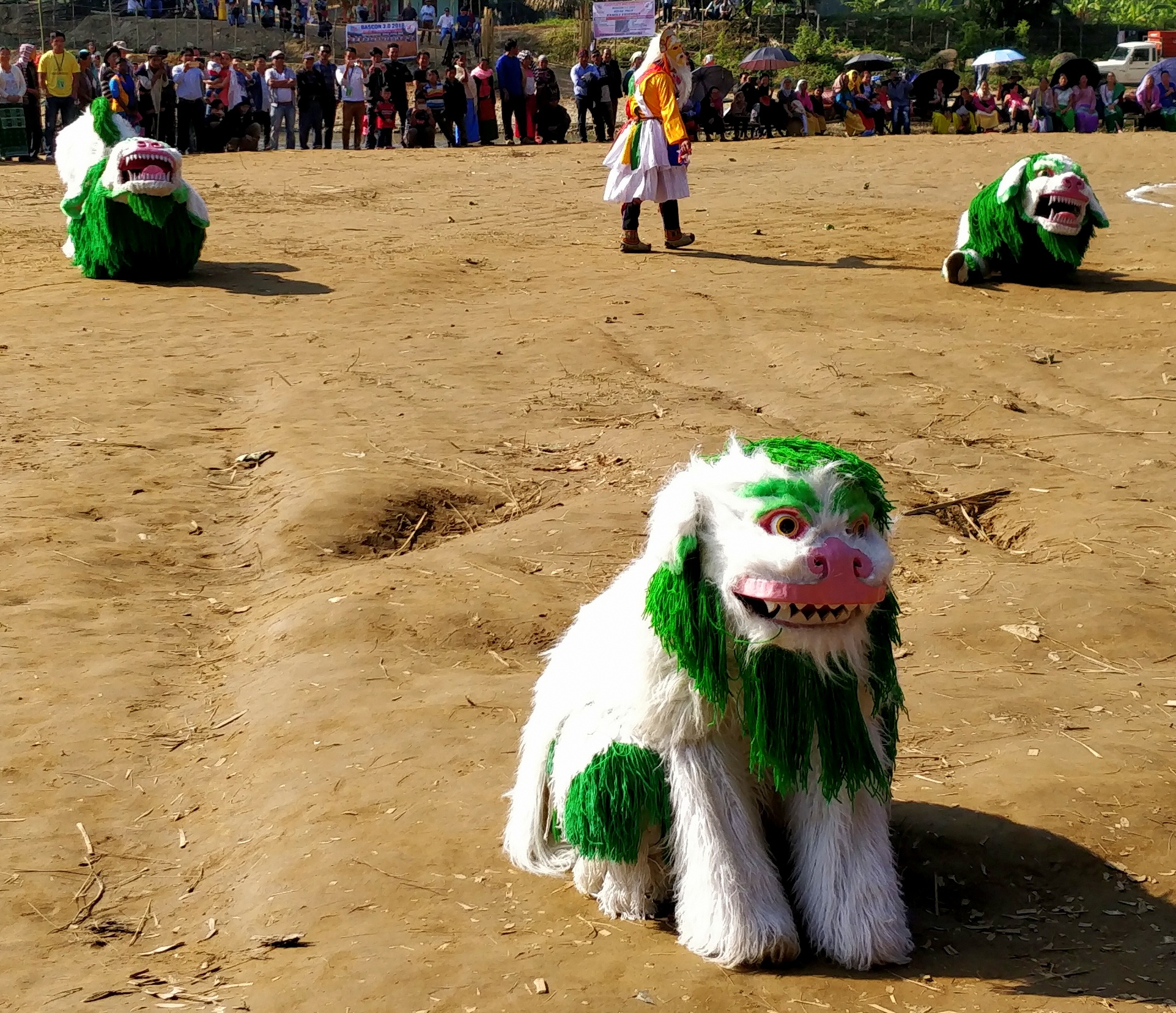
Pulsating music rent the air and the atmosphere was pregnant with anticipation. From the sidelines emerged two giant snow lions followed by a man dressed as a Lama. And what followed was the famous snow-lion dance of Tawang, Arunachal Pradesh. The dance blew us off with its sheer energy and rhythm apart from the antics of the snow-lions and a snow-lion cub. On a serious note, the dance symbolically talks about the harmonious relationship of Man and animal.
According to popular mythology, a saint was once meditating on a mountain. Two snow-lions who witnessed his steadfast devotion were impressed by his stoic determination and offered him their milk so as to sustain his life. Thus grew a beautiful bond between the animals and the saint. This relationship is celebrated by the Snow-Lion dance.
The Dance of The Hunters
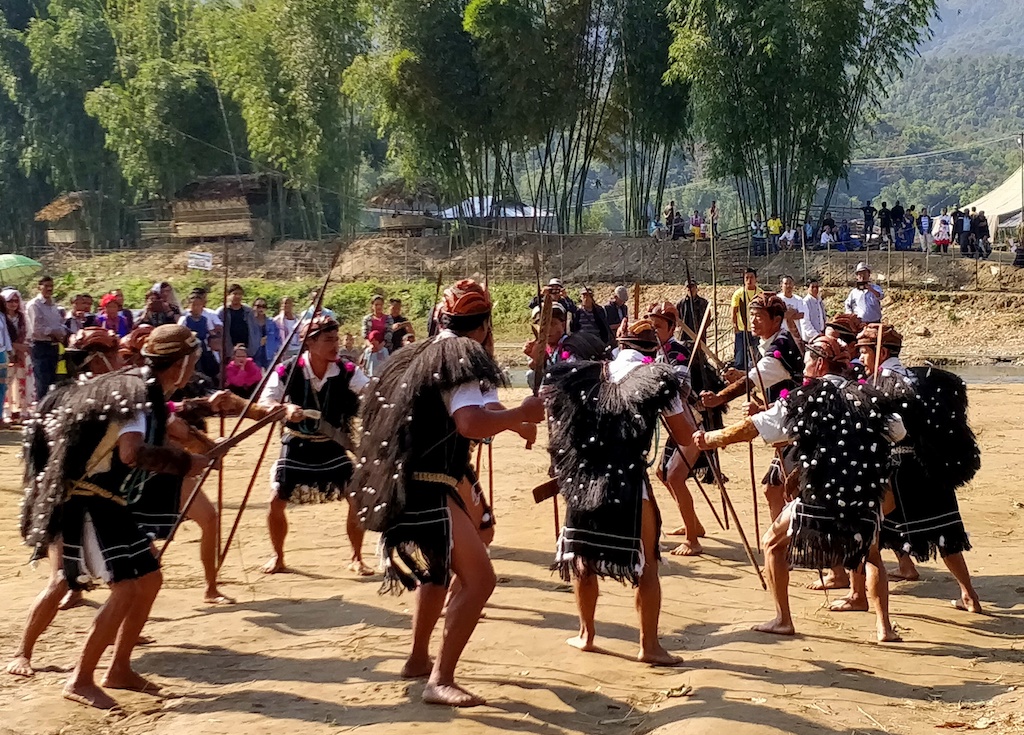
The Galo Tribe were hunters before hunting was banned. In the olden days, they used to hunt tigers and other wild animals so as to protect themselves and their cattle. But they always believed that they and the Tigers all came from the same place. Hence when a hunter killed a tiger, he had to strictly observe certain rules, rites, and rituals as a sort of repentance. He had to stay away from his family and lead a life of celibacy for a period of time. The rituals performed included a special dance ceremony to protect the hunter from being haunted by the spirit of the tiger.
In this ceremony, the hunter was surrounded by dancers who wore the traditional hunting dress and did a ritual dance. Though the practice of hunting tigers is no longer prevalent, the Galo tribe have preserved the hunting armour and dress of their forefathers and the dance is performed on special occasions. We were treated to a display of this unique dance and also spoke with the dancers.
Artist Residency
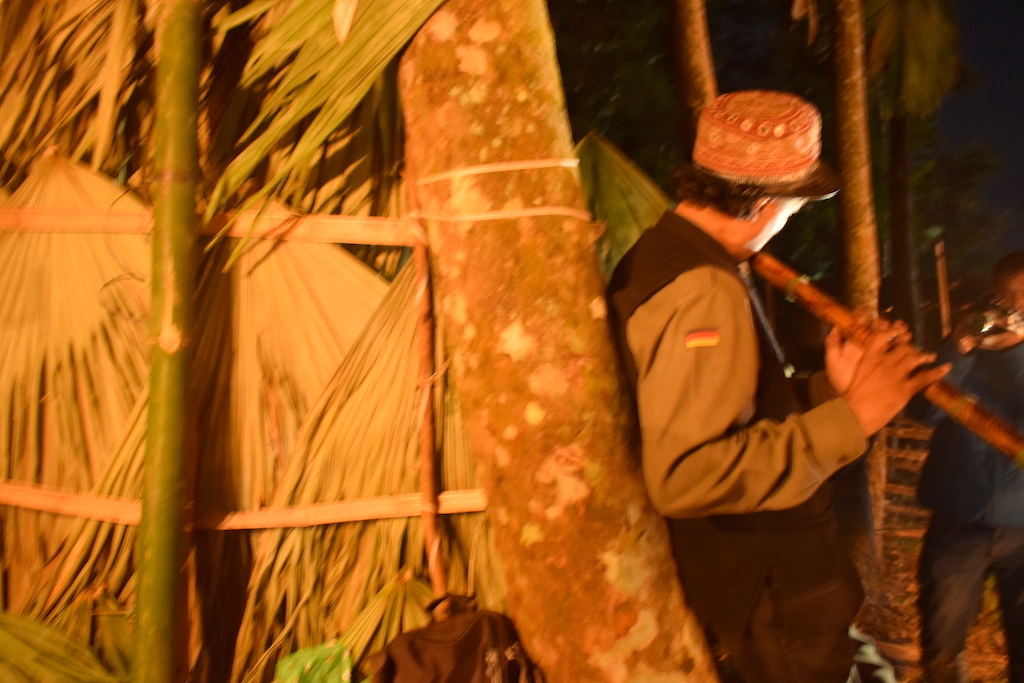
BASCON has a unique artist residency that culminates during the festival. Artists are invited to live in Basar with the Galo tribes and have an immersive experience of the local culture and customs. They are then free to give vent to their expressions through their art. The works that are thus born are then exhibited during the course of the festival.
The artists who were part of the residency in BASCON 3.0 were Dara Okat (Premjit Ramachandran), a musician, filmmaker, and graphic designer, Imon Raza who is a Communications Designer, Artist, and filmmaker, Mridul Kanti Goshami who is a photographer from Dhaka, Ranju Dodum who is a journalist and writer from Itanagar, Subhash Maskara who is a filmmaker, and Rakesh Roy Choudhury who is a painter from Guwahati.
M For Music

As the mist settled down chillingly over the festival grounds and daylight transitioned into darkness at around 5.30 pm in the evening, music took over in spectacular fashion. It was the time for the local musical bands to ignite a thousand sparks in the hearts of the viewers.
We listened enraptured to Galo numbers which the locals simply swooned over. Girls and boys went hysterical with joy and we got infected too. It has been near to a month now, but the songs haunt us and we have become fans of the bands and their music.
Though each and every band set the stage on fire with their own unique style of music, some of the bands and musicians who it was apparent were the local superstars and also those who stole are our hearts were Dr. Nikom Riba with his soulful and romantic melodies, David and The Band (David Angu and the band ) who evoked mass hysteria with his “Oh Delo” number. Doorik Ete and the traveling band, Jeli Kayi and the Band, Mijum Riram and Mojum Riram belted out beautiful Galo melodies and Moli Basar sang some Galo rap songs.
BASCON 3.0 is over but the music of these bands still linger hauntingly.
Other Attractions On The Sidelines of the BASCON Festival
Storytelling
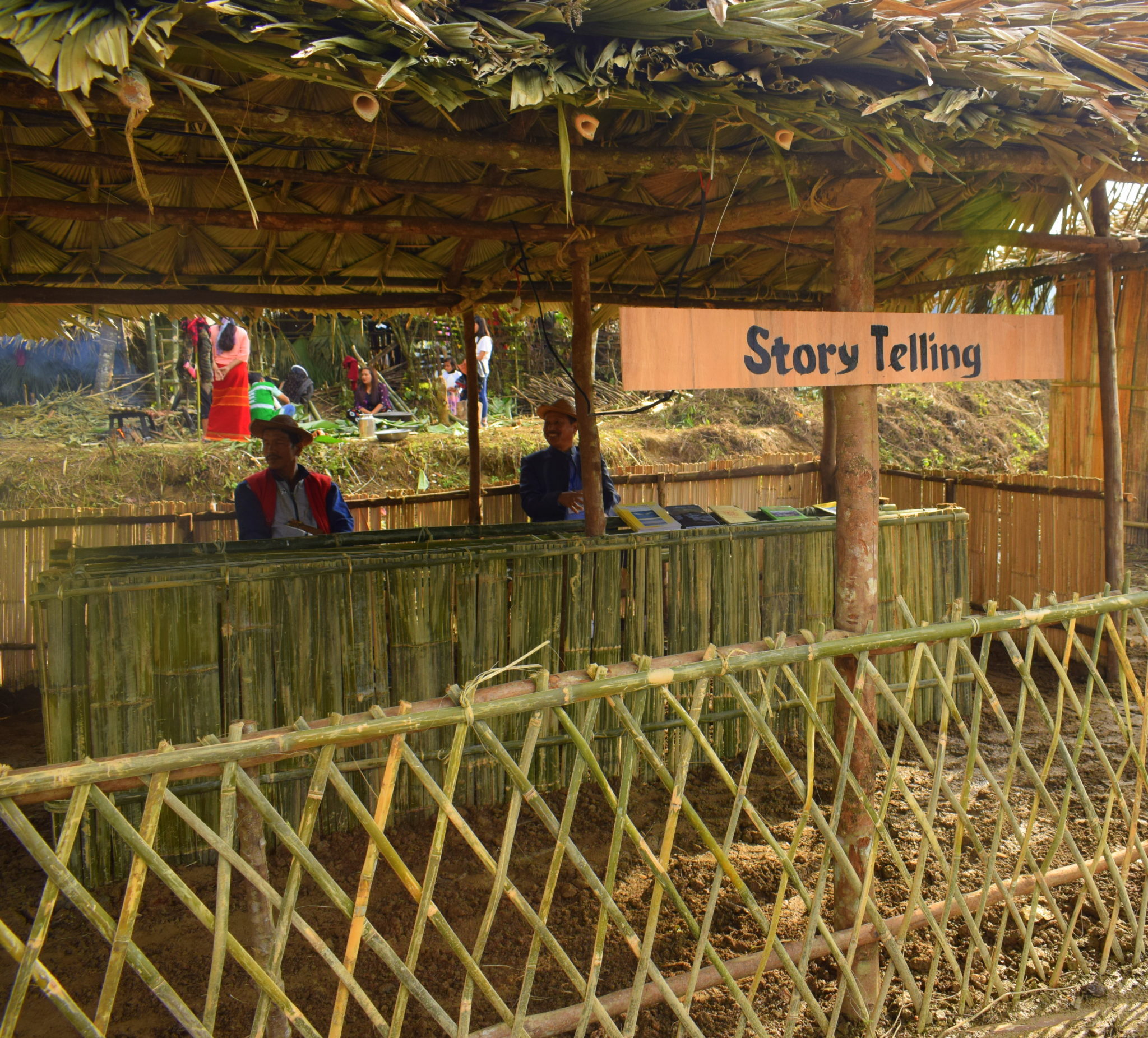
The Galo tribe has a rich history and culture. Their traditions and customs are indeed fascinating. Their history has survived through the means of oral communication only as handed down from generation to generation.
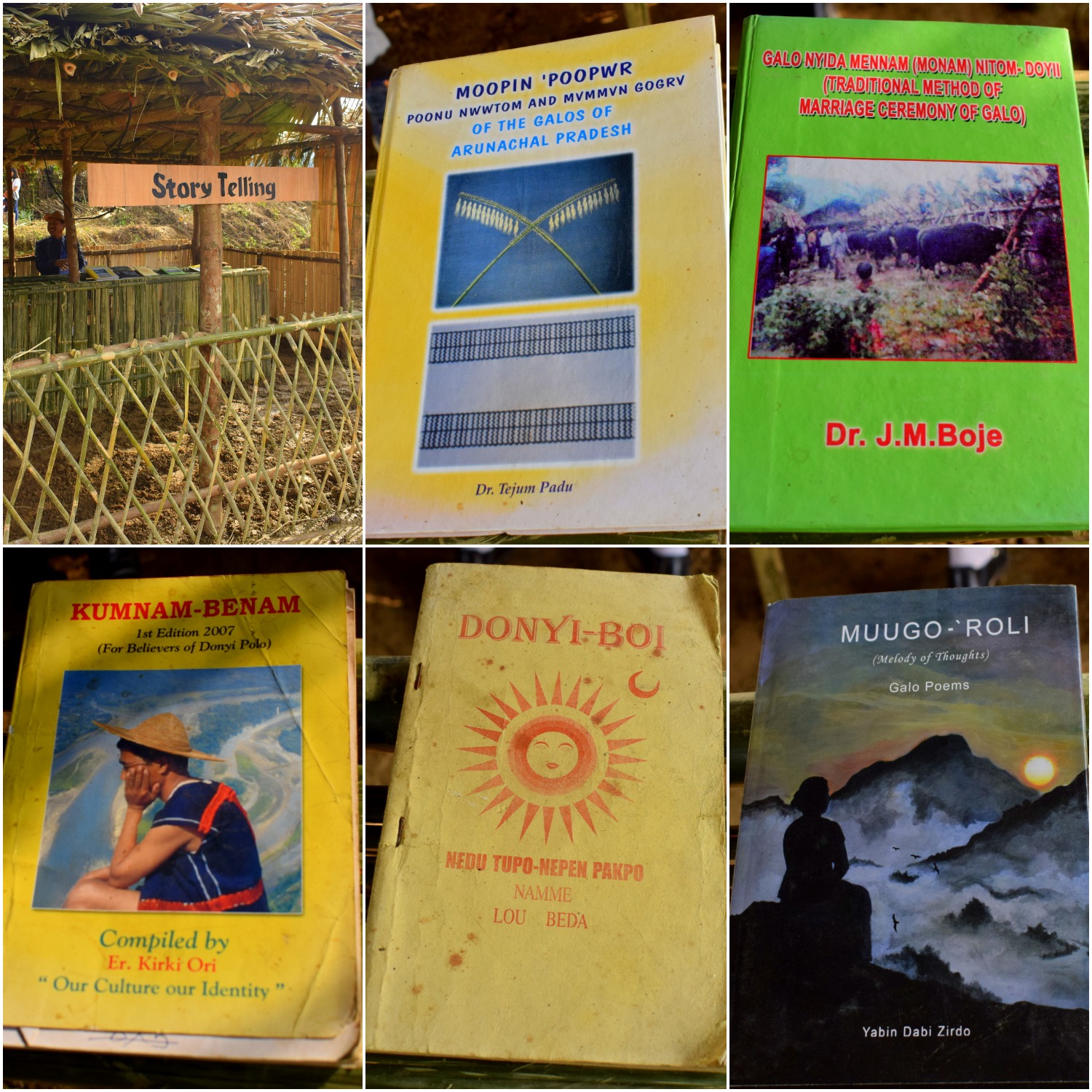
It is only in recent times attempts have been made to document the history and culture of this indigenous tribe. BASCON with an objective of creating interest and ensuring that the ancient traditions and culture survives had a special stall, just for storytelling. The stall was manned by learned priests of the tribe who had fascinating stories to tell about their ancient history and culture. Even before the start of the festival, we were privileged to be guests at the home of Merken Doke, a priest from the Galo tribe. We learnt a lot about the Galo heritage from him and others at a gathering in his home.
Agri Tourism
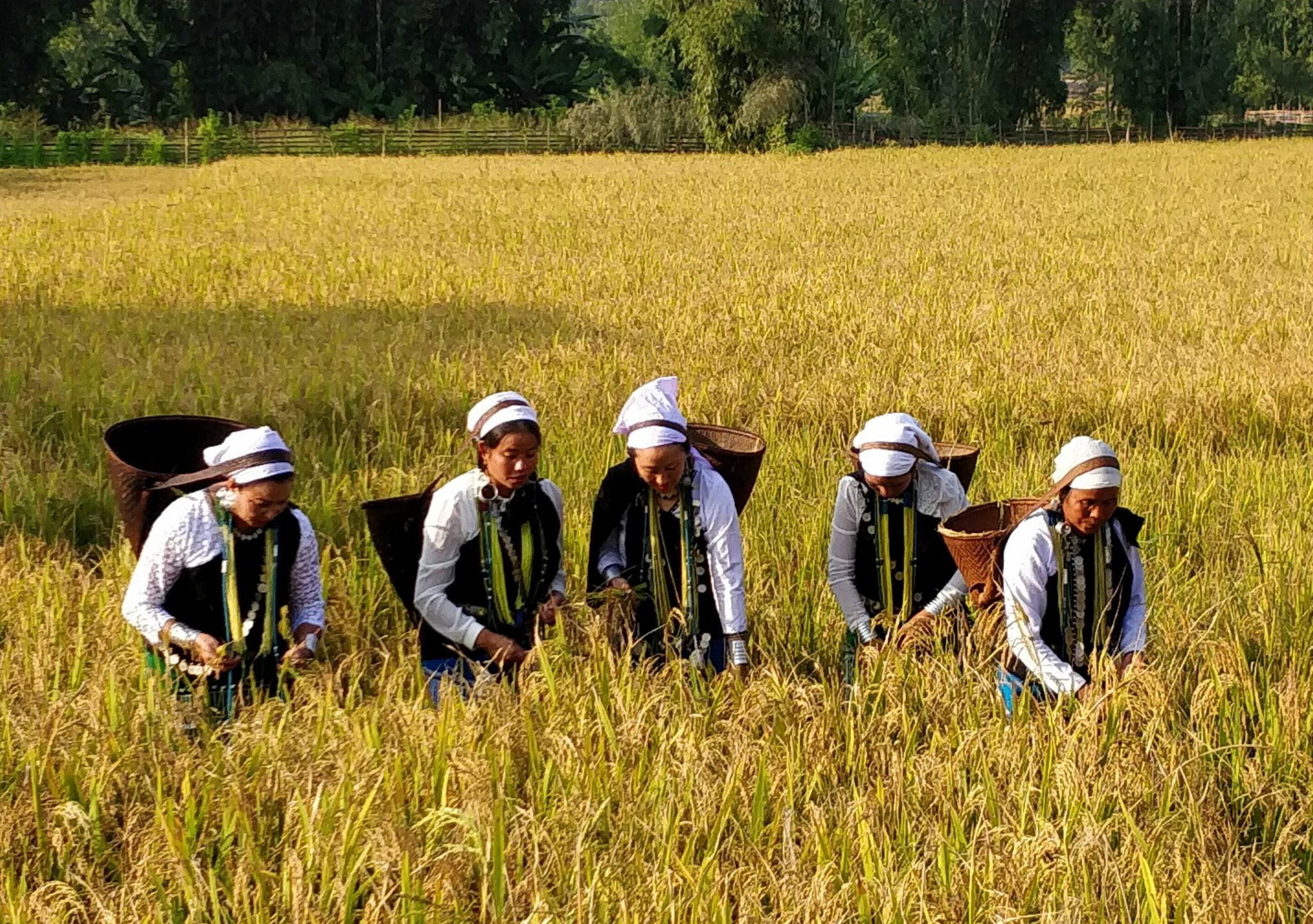
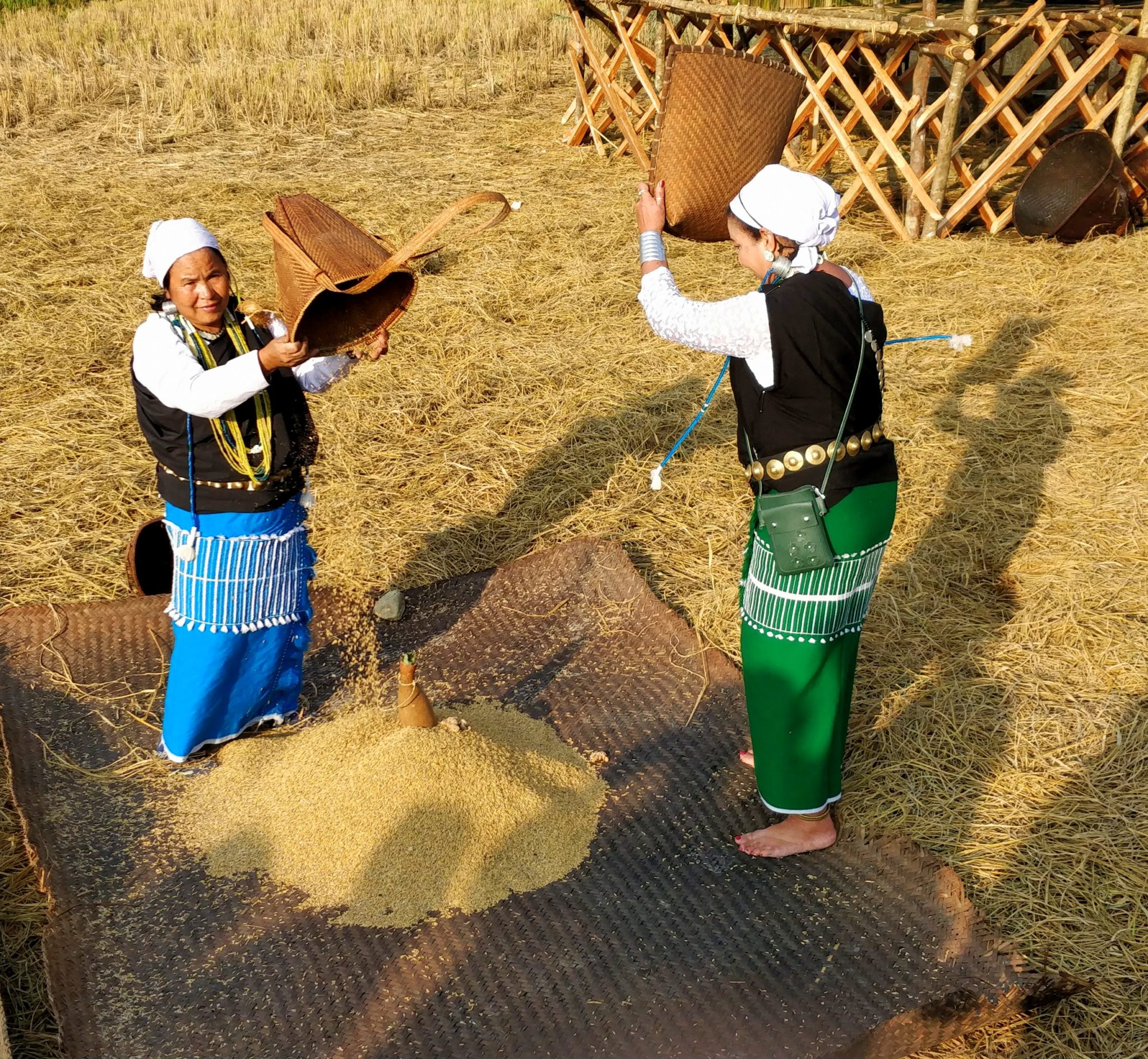
A special section showcased the proven and age-old traditional techniques of farming. This was achieved by live demonstrations by the Galo tribes people.
Traditional Food At Basar
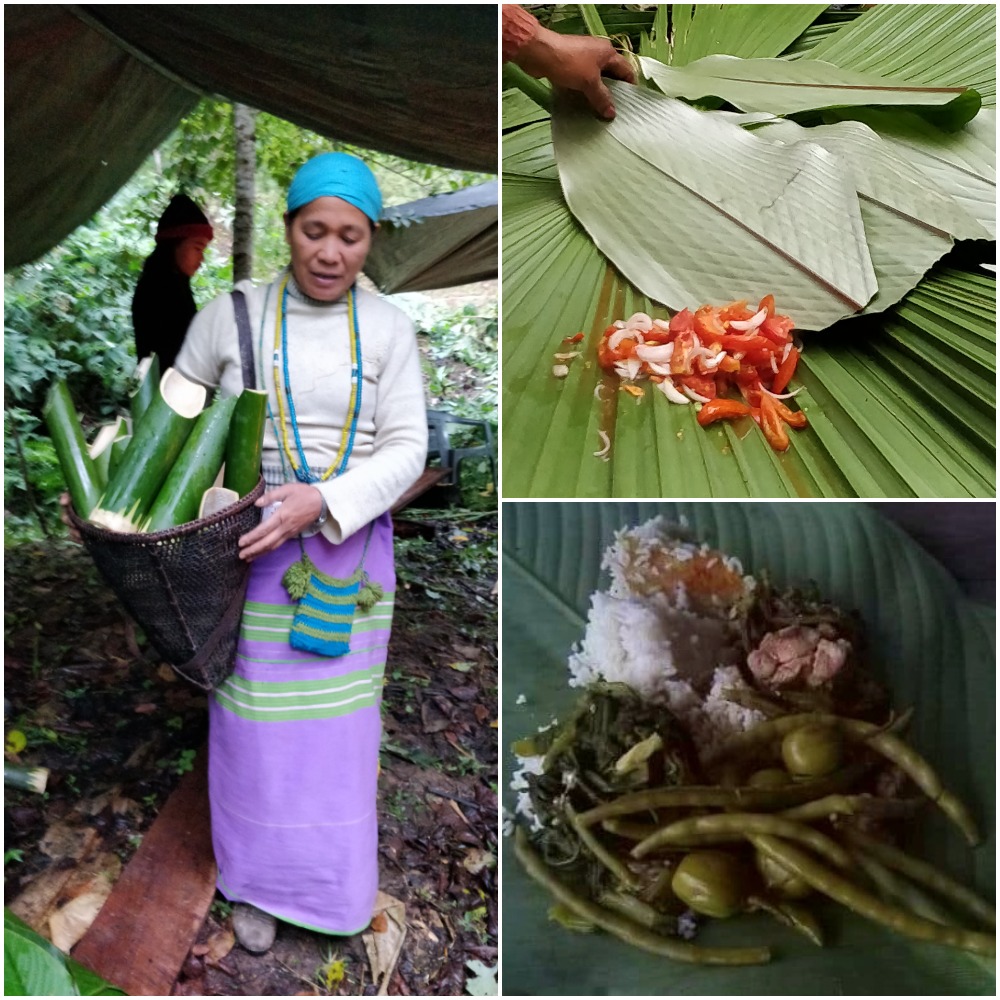
The BASCON festival is a great opportunity to savour fresh, organic, and traditional food from the kitchens of the Galo tribe. Each village had set up a stall and served different traditional dishes from the Galo cuisine. Many of the stalls also served the ubiquitous rice wine, Poka.
The Venue of the BASCON Festival at Basar
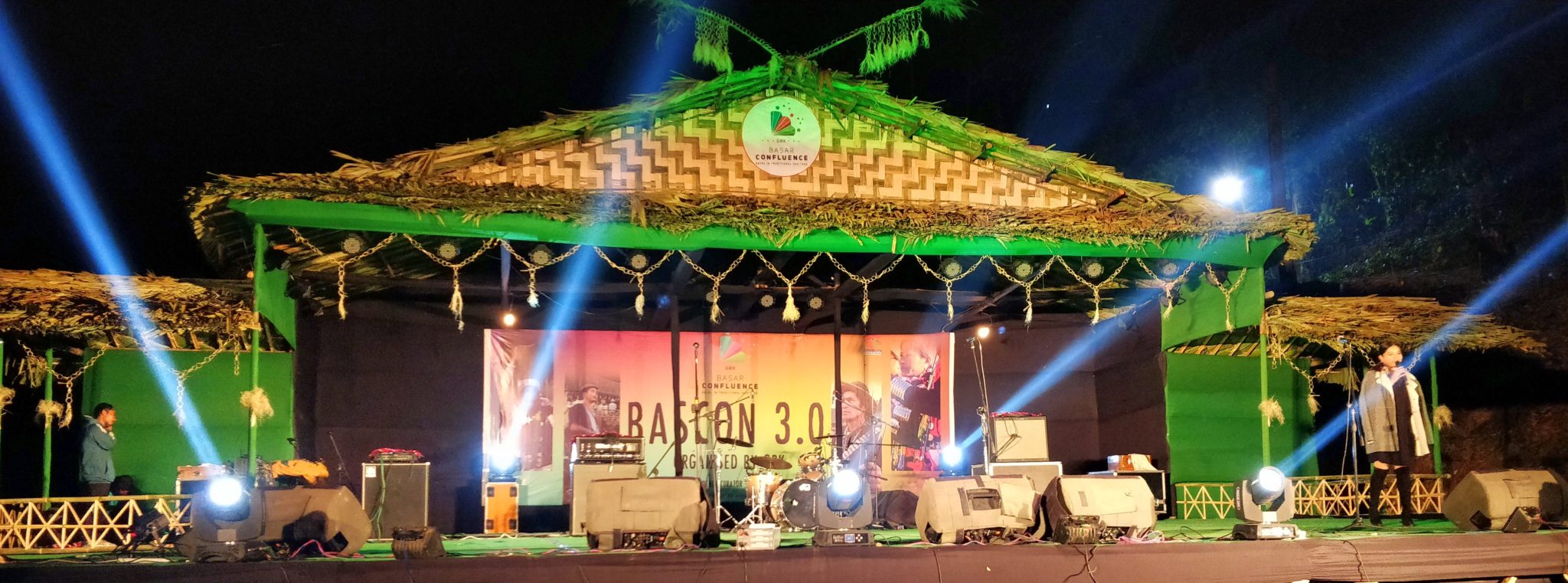
Basar is a beautiful and picturesque town and now the headquarters of the newly formed Lepa Rada district of Arunachal Pradesh. The BASCON festival is held at the confluence of the rivers Hie and Kidi in Basar. It is a beautiful setting for a celebration of culture and music. The silvery waters of the rivers fringed by greenery on all sides and with mountains in the distance make for an ideal backdrop.
We visited the venue a couple of days before the start of the festival and we were enchanted with the pristine surroundings as we watched preparations in full swing, despite heavy rains in the preceding days.
BASCON Festival – A Festival In Harmony With Nature
What really sets the BASCON festival in a league of its own is the fact that it is in complete harmony with nature. The Galo tribe are essentially nature worshippers and live in harmony with nature and this is echoed in everything that the BASCON festival stands for.
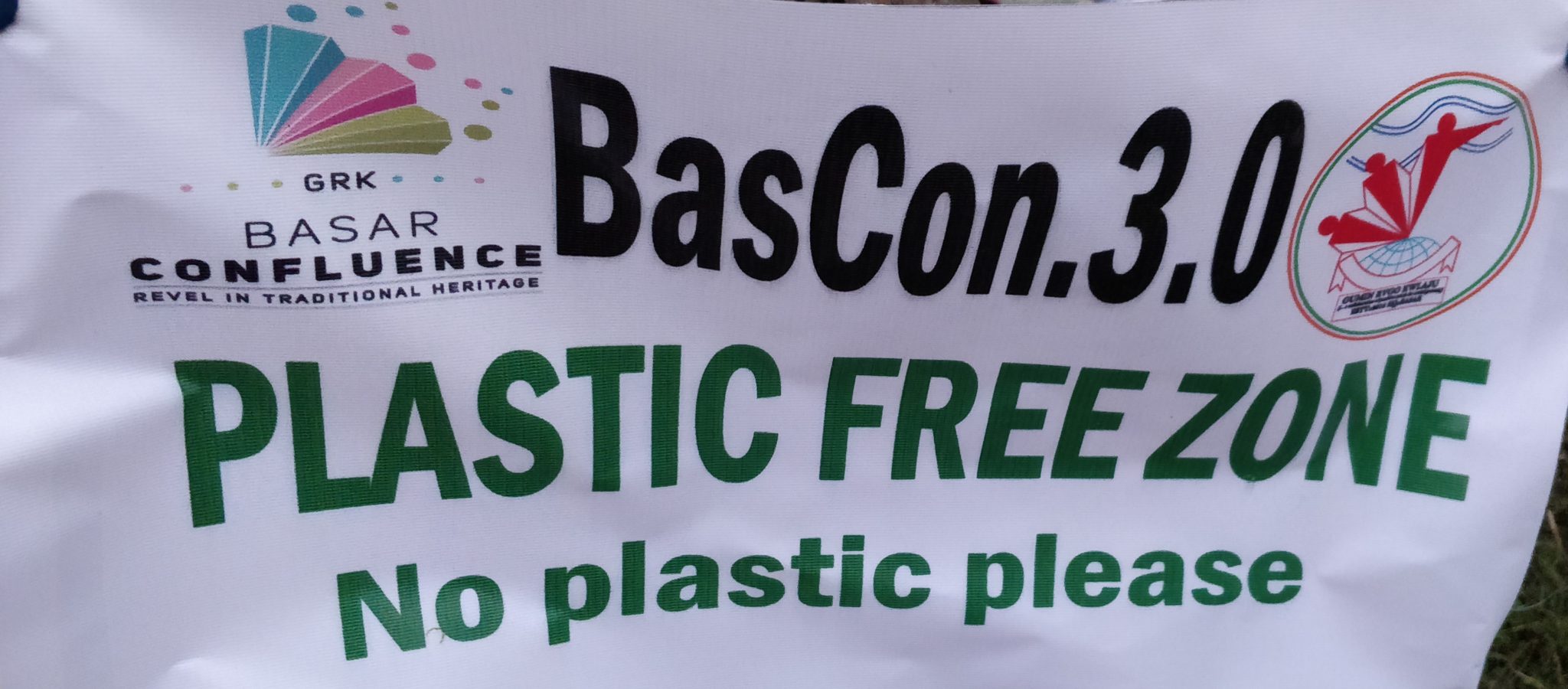
In GRK Basar Confluence, plastic is a BIG NO. You do not see plastic or concrete anywhere. Right from the massive stage to the stalls, everything is built with bamboo and leaves.
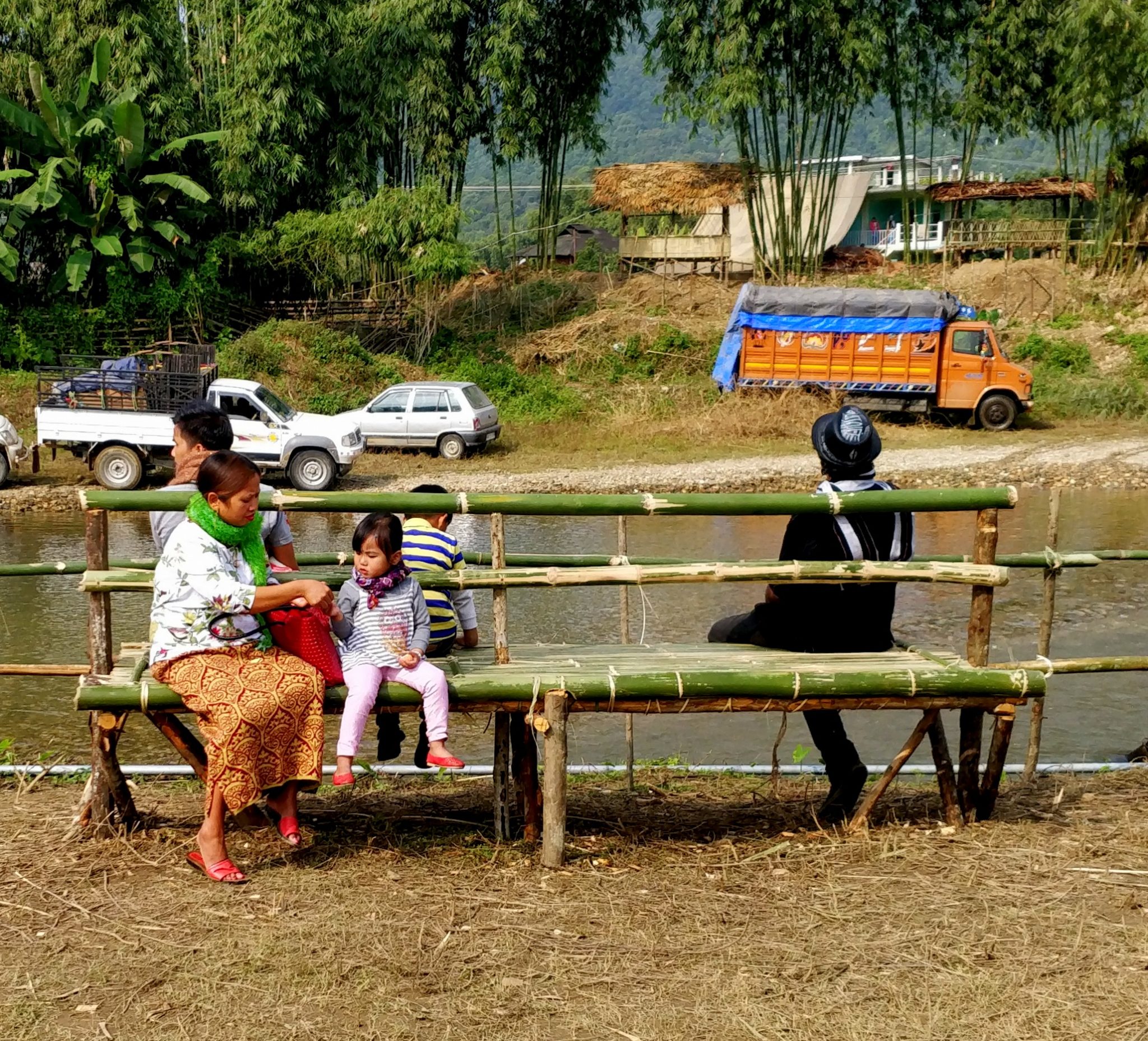
The trash cans, the chairs, the benches, all are made of bamboo and specially fabricated just before the festival.
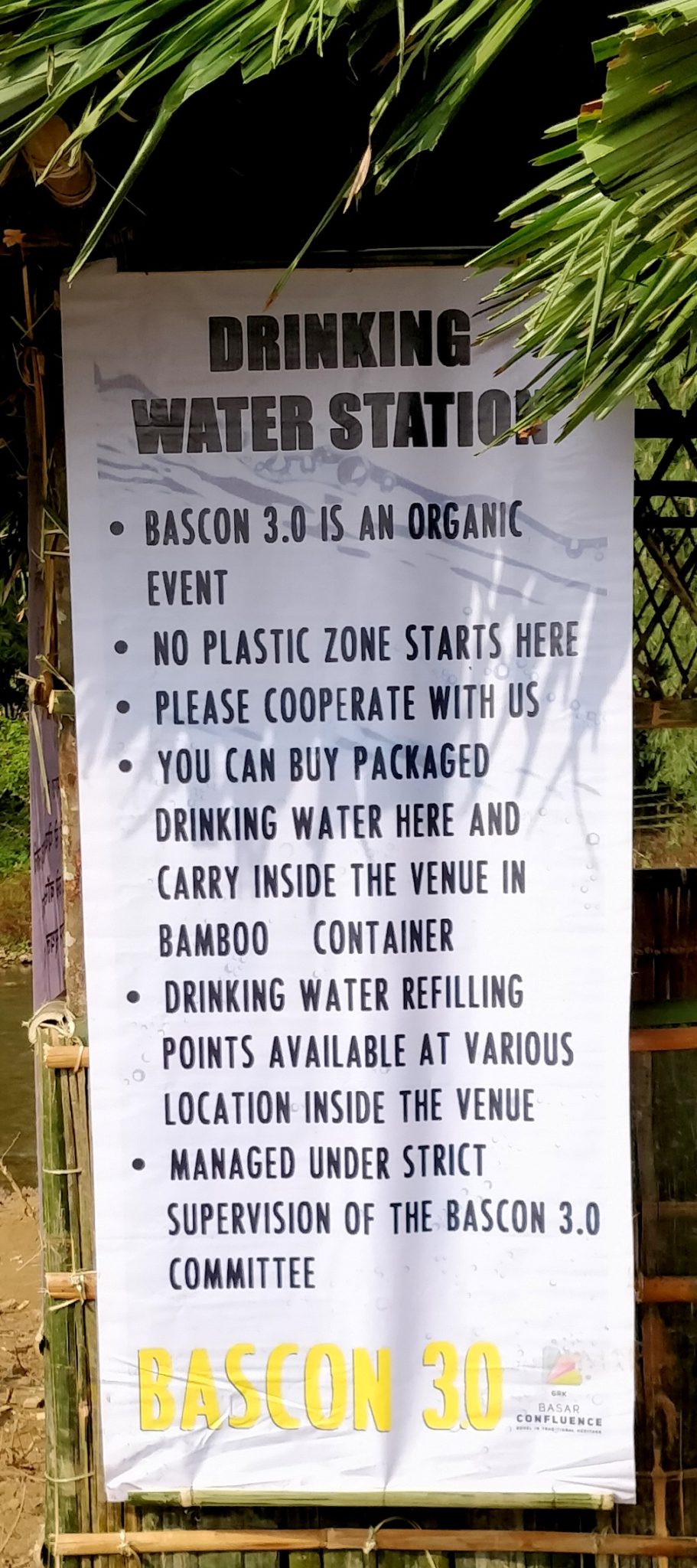
Food is served on leaves. Water is served in bamboo stem containers. Foreign liquor, cigarettes, and tobacco are banned. The local rice wine known as Poka is served in bamboo stems. We carried our own bamboo stem containers filled with water at the festival grounds. The BASCON festival is indeed showing a beacon to others towards an organic, natural, and no plastics festival. The organizers of BASCON festival are truly promoting Eco tourism and Sustainable tourism.
BASCON Festival – A Community Effort
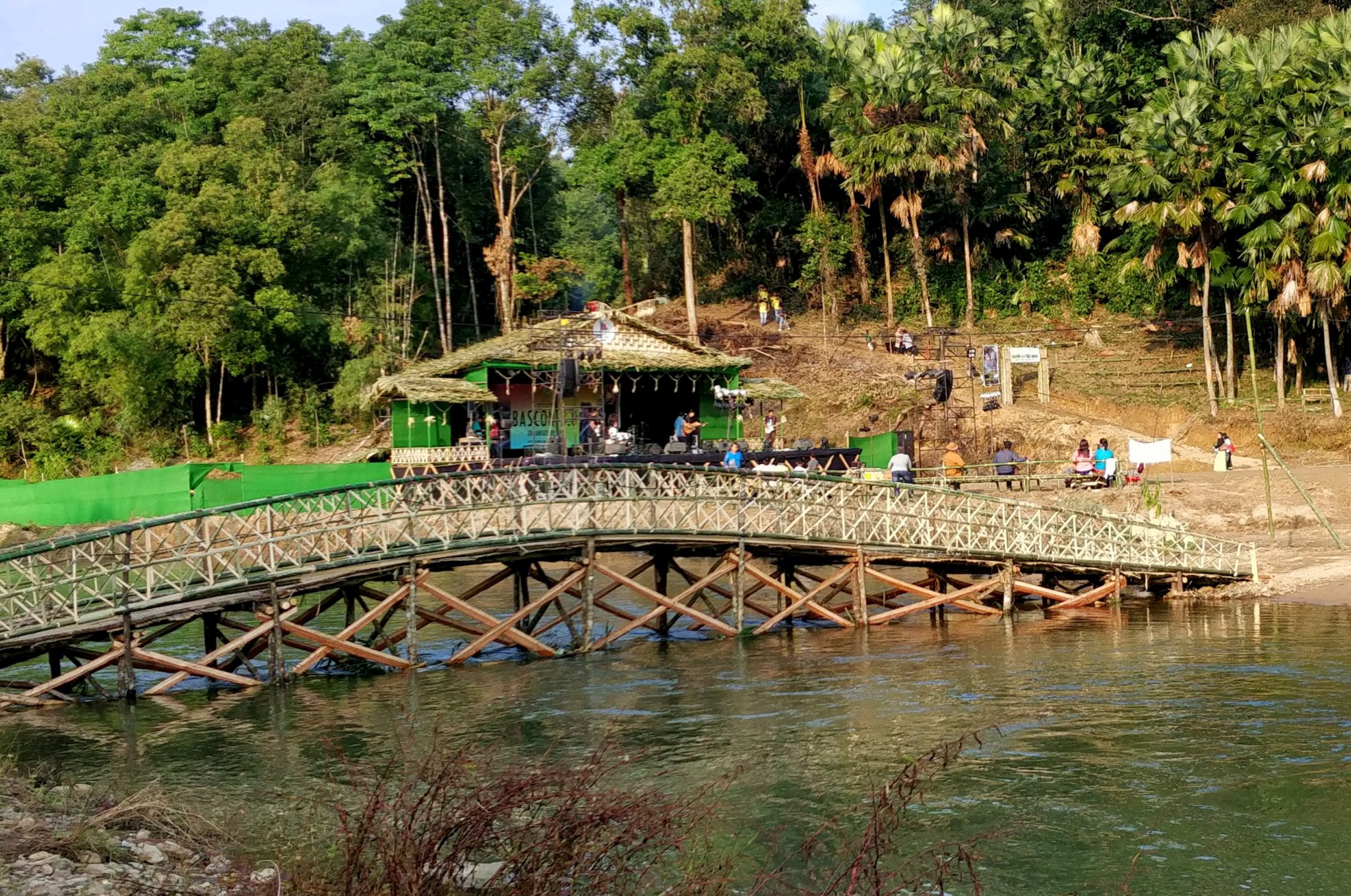
“He walked 26 kilometres from his village to help in erecting this bridge”, said Henka Basar who was with us when we visited the BASCON festival a few days prior to the festival. He pointed to a man who was hard at work with his fellow villagers erecting a bamboo bridge over the river. This in many ways epitomises the spirit of community with which the Galo tribe help in organising the BASCON festival.
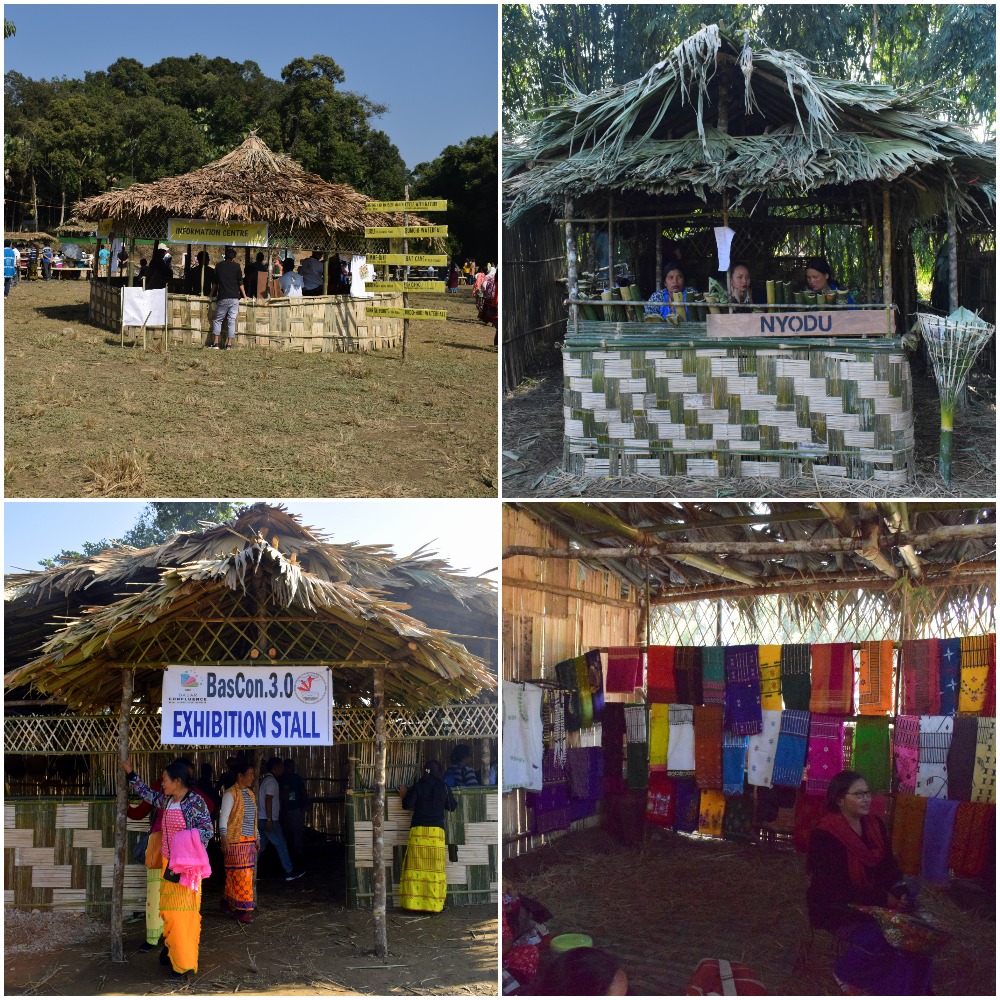
Each village in the vicinity had been assigned their particular work and the villagers knew exactly what to do. Heavy rains had put a spanner in the works, but as if by magic, the giant stage materialised, bamboo bridges fording the rivers appeared, and innumerable bamboo huts to serve as food stalls sprang up, all thanks to the teamwork of the Galo tribe.
The Organization Behind BASCON – Gumin Rego Kilaju (GRK)
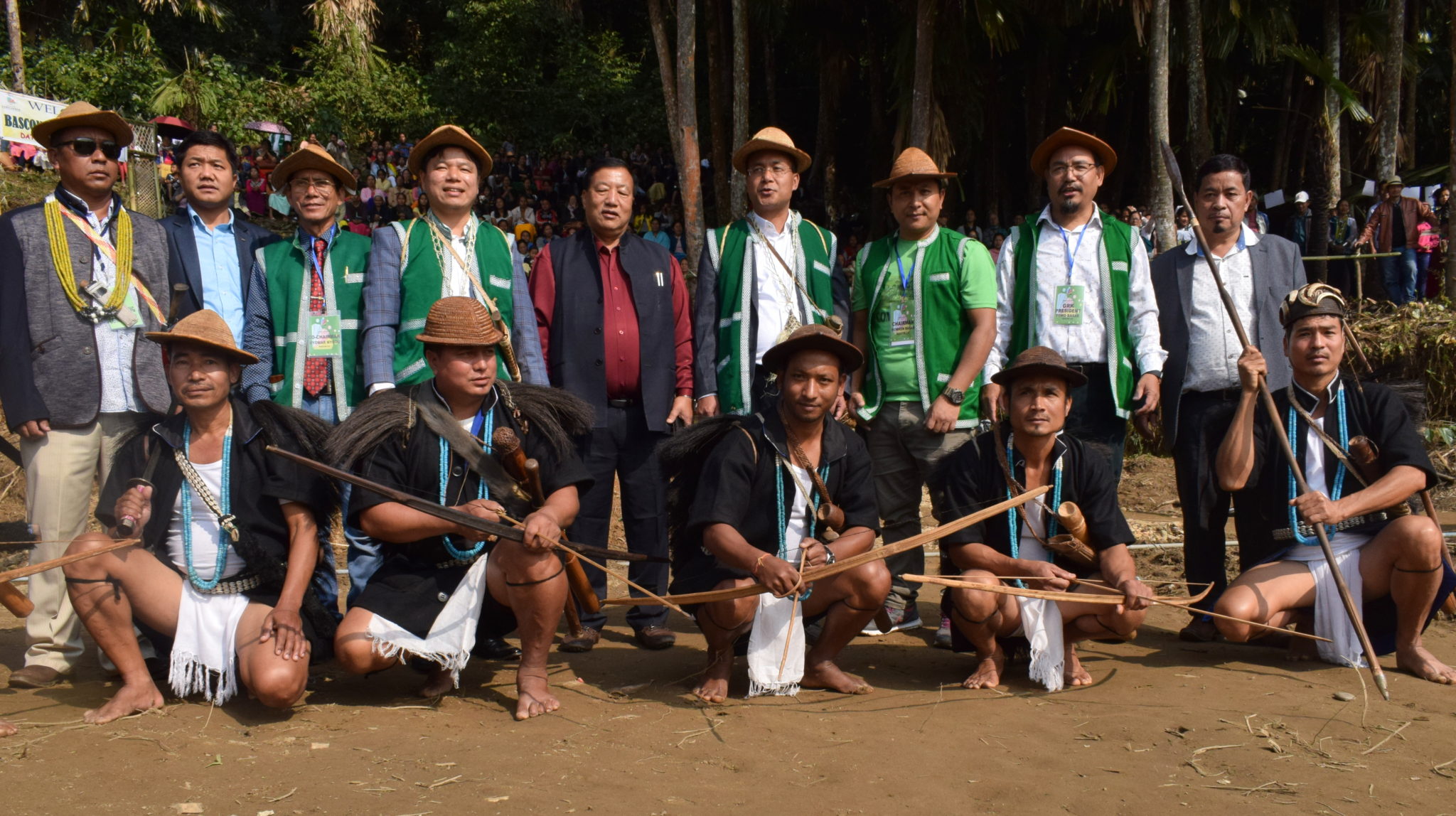
GRK -Gumin Rego Kilaju is the organisation that has been silently catalysing a movement that is extraordinary in intent and scope. GRK is an organisation that was formed by Government officials from Basar belonging to the Galo tribe to ensure sustainable economic development of the region. GRK is the organisation that has been working with the villages around Basar and organising the BASCON festival.
GRK is creating a utopia of sorts in the villages that it is working in. Its focus includes community development, health and sanitation, preservation of culture and traditions as well as time-tested values.
The stated objectives of GRK include creating a society which treats all as equals, promoting a culture of education and sports, conservation of flora, fauna, and marine life, taking the society to the concept of we, ours, and us, and finally remaining apolitical, non-profit making and self-supported.
Watch the President of GRK, Er. Tomo Basar talk about the vision of GRK here:
Beyond The BASCON festival in Basar
We were at Basar a couple days before the BASCON festival. We visited different villages of the area and interacted with the local Galo tribe. We visited their homes and had food with them and learnt about their way of life. It was a unique and fascinating experience as we closely observed the customs of this warm-hearted tribe who always had a smile on their lips. We went on hikes with the locals and even had a picnic in the woods with barbecued food washed down with the local rice wine, Poka.

The experience in the midst of nature with a people who seemed so down to earth and at one with nature was definitely beyond the ordinary.
Sports & Adventure At BASCON
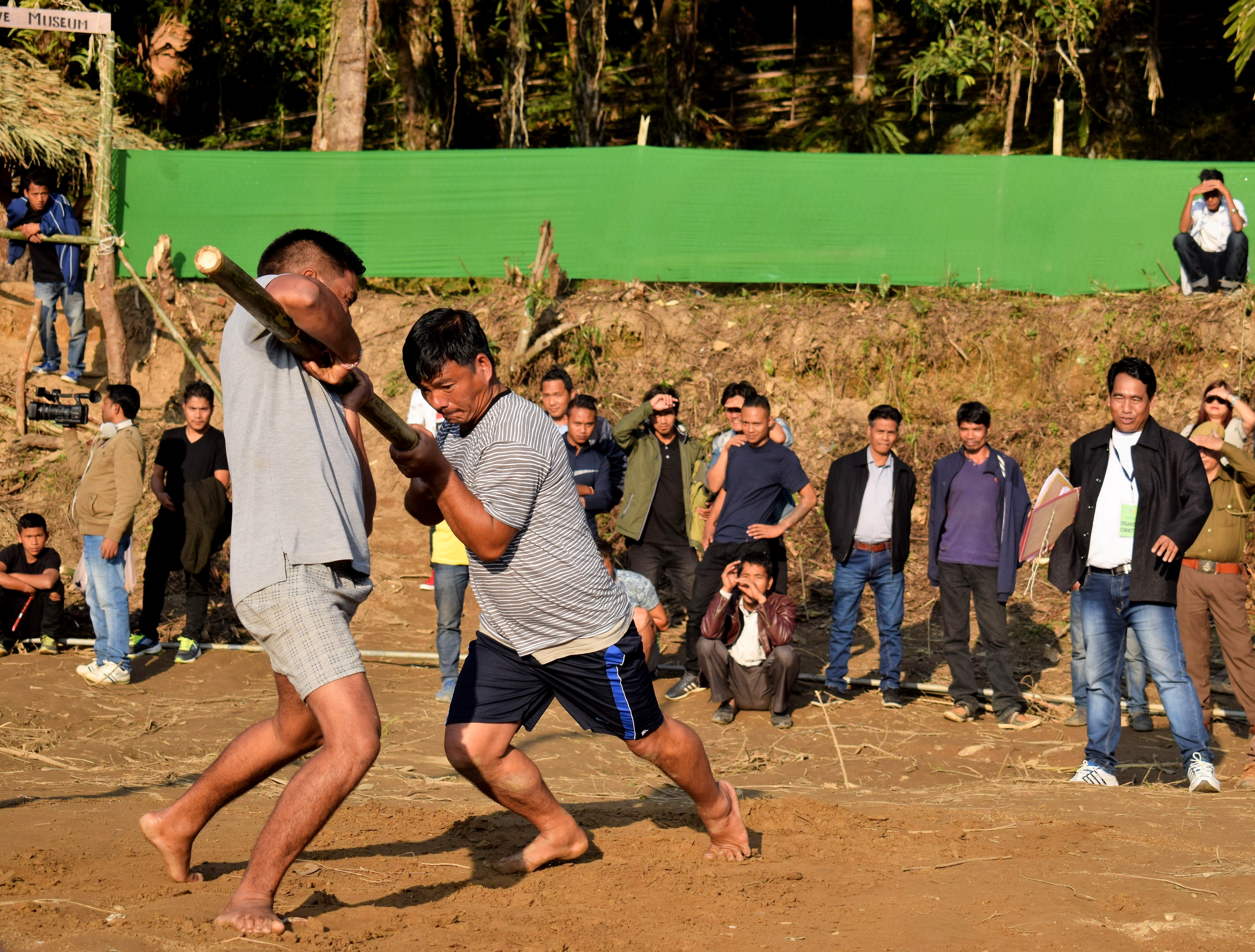
There is a lot of music, dance, and culture to be enjoyed at the BASCON festival, however, those looking for sports and adventure too need not be disappointed. There is adventure aplenty as well as local village games as part of the BASCON festival. Some of the highlights of adventure and sports in BASCON 3.0 were:
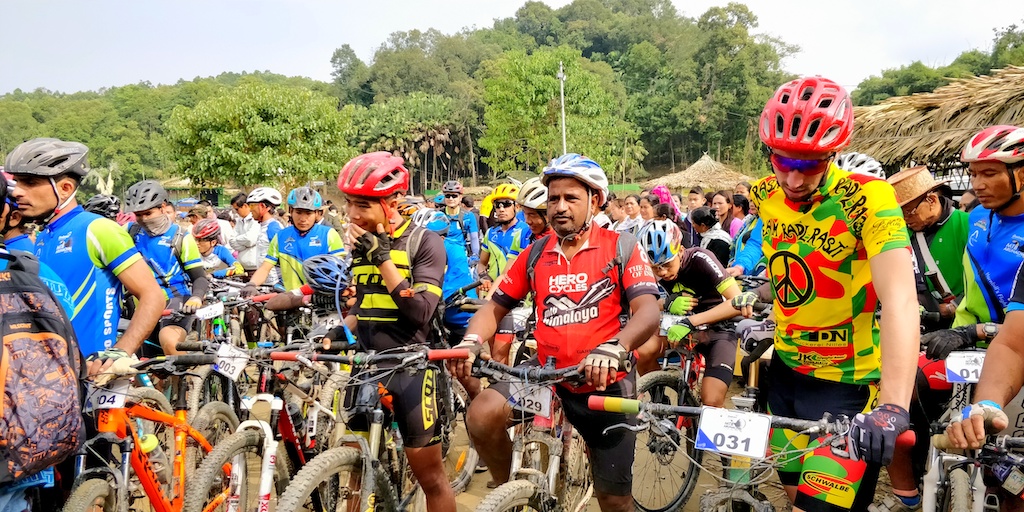
- One leg of the MTB (Mountain Terrain Biking) Arunachal Pradesh was flagged off from Basar. We had an opportunity to speak to some of the participants who praised the beauty of the land of Arunachal Pradesh and the helpful nature of the people. Among the participants were Vandana Singh, a housewife with two kids and a cyclist who named Datta Patil from the state of Maharashtra who was riding barefoot. There were many international participants as well and they were all really excited about being part of MTB Arunachal Pradesh.
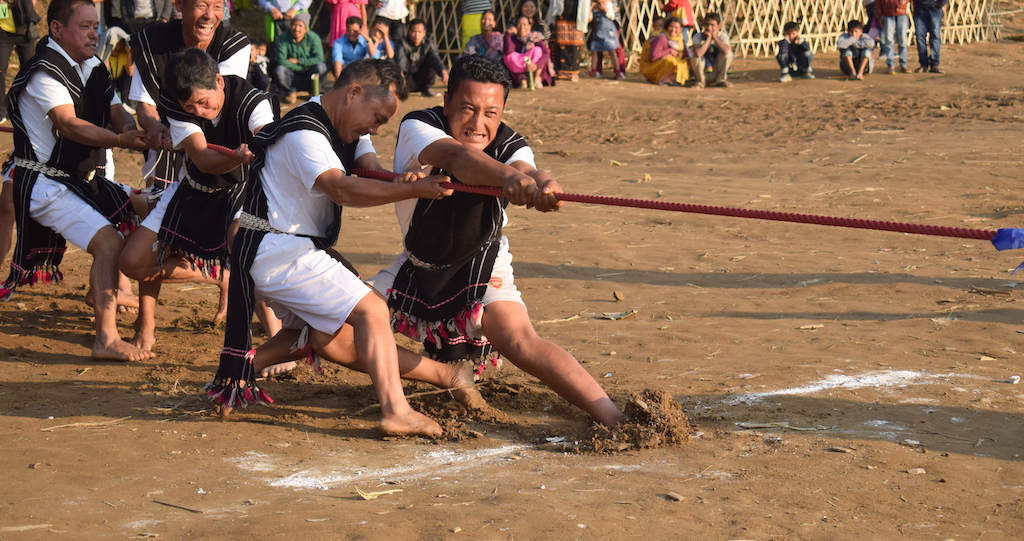
- Local sports competitions made for lots of fun and excitement and these included Tug of War, archery, as well as swinging and swirling oneself around what looked like a long rope with one end tied to the top of a long pole and the other end tied firmly to the ground. However, on closer inspection, we found that the rope was actually a tall and thin bamboo trunk.
- Visitors could also try their hand at the ATV rides near the festival grounds
- There was camping near the banks of the river, very near the festival grounds
- For those looking for adventure with nature the beautiful environs of Basar offer many thrilling hiking trails to scenic waterfalls and viewpoints
Places To Visit In And Around Basar
When in Basar, it is imperative to take in some of the pristine marvels of nature that dot the region and these include:
- Bumchi Waterfall
- Dimme-Dite Waterfall
- Bat Cave
- Joli – The Haunted Place
- Odii Putu Hill Top
Some More Glimpses of the BASCON Festival
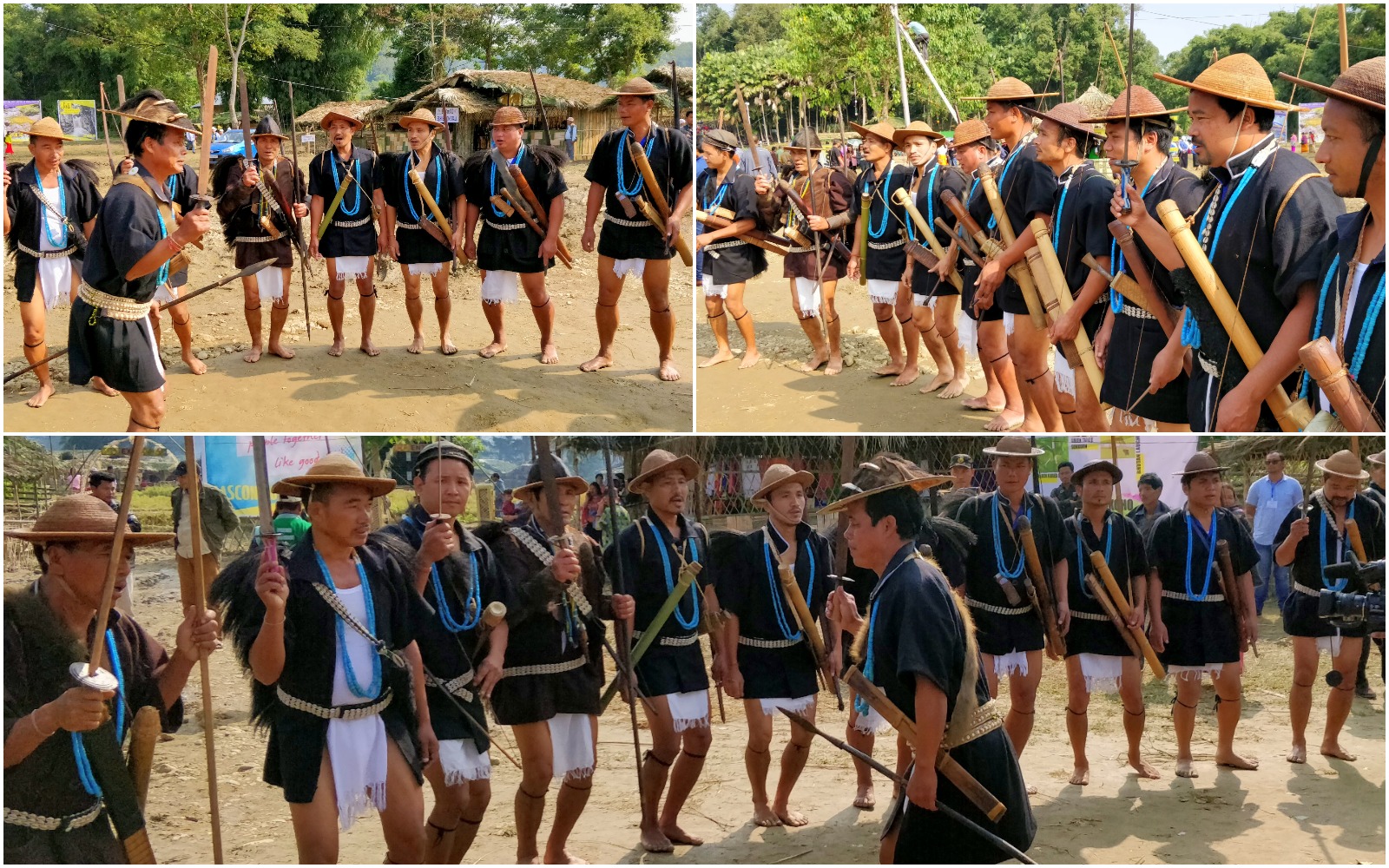

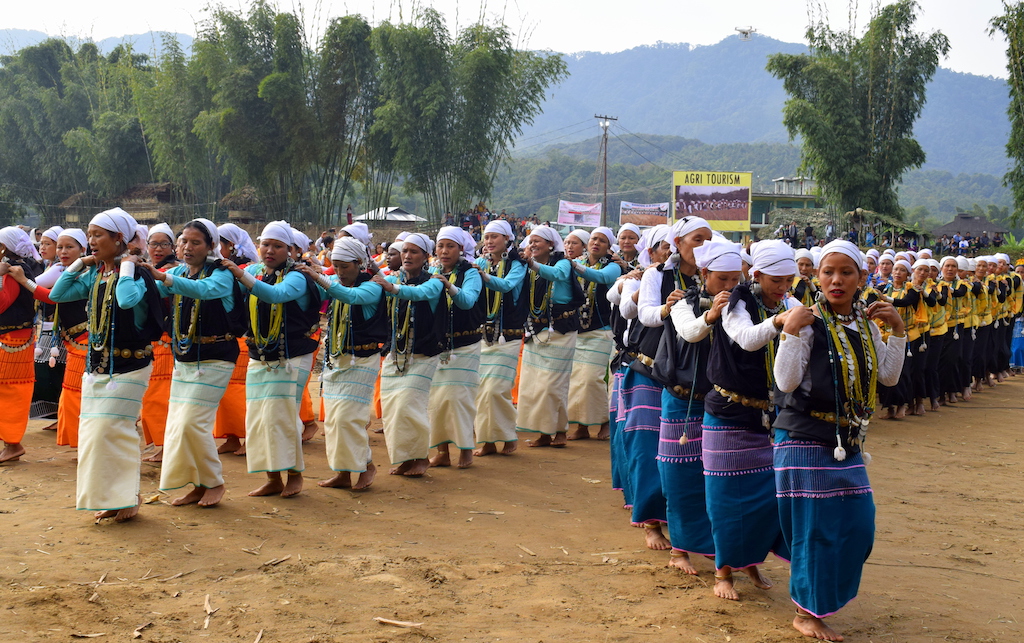
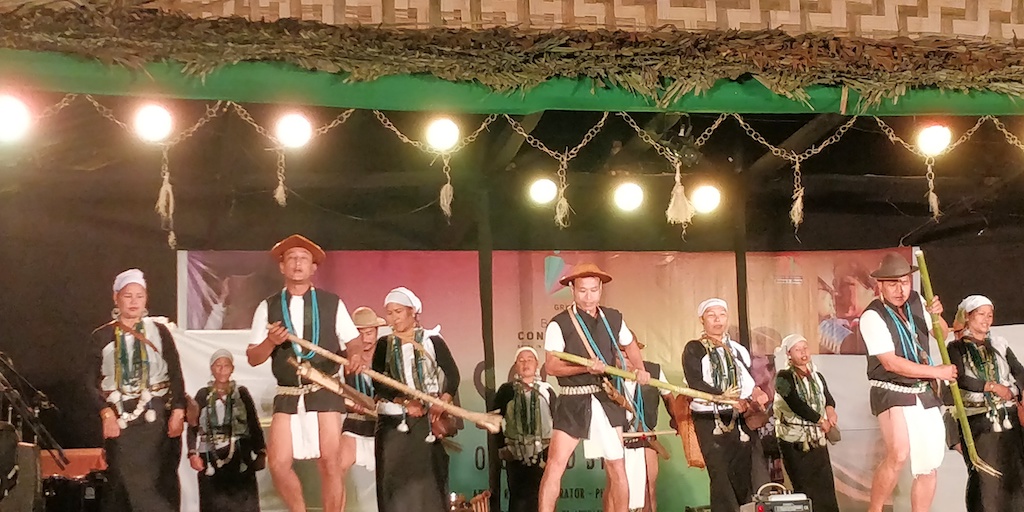
How To Get To Basar
- Basar is located in the centre of the North-Eastern state of Arunachal Pradesh, India
- Basar is about 150 kilometres from Dibrugarh in the state of Assam
- Dibrugarh airport is connected to Delhi and other cities of India
- From Dibrugarh one needs to drive to a place called Bogibeel and cross the Brahmaputra river on a ferry and then drive to Basar through Silapathar and Likabali
- The Bogibeel bridge has ensured faster and smoother access to Basar and other parts of Arunachal Pradesh by road
Where to Stay In Basar
Home-stays which is also open a window to the culture of the Galo tribe are a good option to stay while in Basar. Camping facilities at prisitine locations are available. There are also a few hotels and hostels available. If you are visiting Basar do contact GRK and they would be happy to guide you.
If you want to witness a festival that is unique in many aspects, if you want to lose yourself in the lap of nature, if you want to be swept away by the warmth and hospitality of a people firmly entrenched to their roots, if you are tired of touristy places like Shimla, Ooty, and Darjeeling and want to experience something pristine and beyond the ordinary, then pack your bags and head to Basar. Basar awaits with open arms.
Have you traveled to the Northeast part of India? Have you attended any festival? Do share your thoughts in the comments section below.
We were hosted by BASCON – GRK. However, the views and opinions expressed here are our own.
We are a reader-supported site. This means, at no additional cost to you, we may earn a small commission if you book a flight or hotel, or make a purchase through one of our affiliate links. Thank you for your support!
Flights – Air India (Domestic) or Air India (International), or Priceline
Tours – Click to book top tours around the world. Book tours and activities here.
Experiences – Book your next unforgettable experience here, with flexible bookings and free cancellations. Reserve tours and activities now and pay later.
Hotels – Click to book the best hotels/resorts. Choose the best stay options with TripAdvisor or Hotels.com, or HotelsCombined
Travel Insurance – Click to book Travel Insurance that covers a range of travel insurance and safety services including medical emergencies, lost luggage, trip cancellation and more
Visas and Travel Documents Application – Click here for Online Travel Visa Check
Online Passport Photo – Get Your Passport Photo Online here
Do You Love Traveling?
Do you want to know how to travel the world? We have put together a very useful travel resources page with the best travel tips. Go check it out now. Thanks for visiting our site Voyager - imvoyager.com and taking the time to read this post! If you wish to collaborate/work with us then reach us at [email protected] We’d love it if you’d comment by sharing your thoughts on this post and share this post on social media and with your friends. Follow our journey on our social media channels: Facebook X Instagram Pinterest YouTube
Start dreaming about your next adventure with Tripadvisor. Book your next unforgettable experience here with flexible bookings and free cancellations.
Flight booking online at the best fare
60+ Million Users Trust TripAdvisor With Their Travel Plans. Shouldn't You?
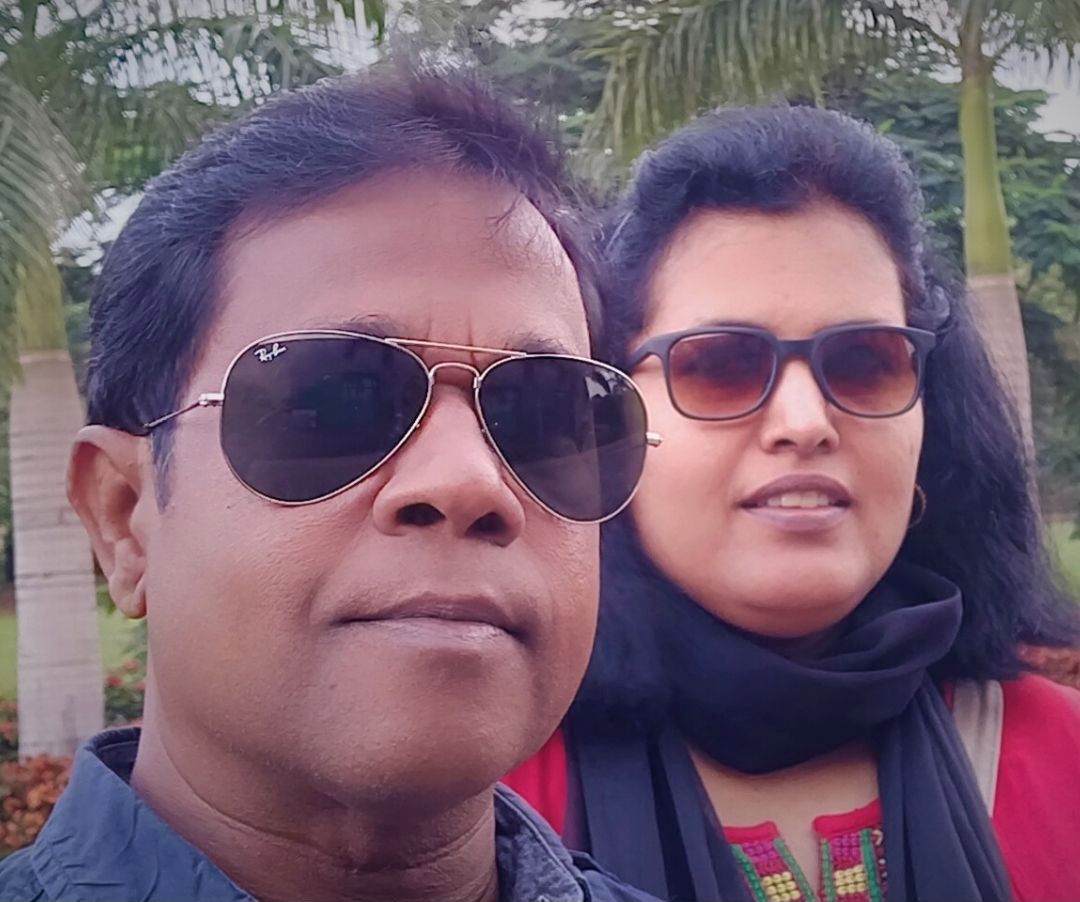
Sandy & Vyjay are a husband and wife duo who are travel content creators. They are co-founders of this travel website and are one of the leading travel content creators in India.
Sandy & Vyjay quit their successful corporate careers to pursue their passion for travel and writing full-time. Their dedication has earned them the “Best Travel Writer” award and numerous accolades on both national and international stages. Focusing on India’s destinations, heritage, and culture, they are passionate advocates for nature and the environment. Through their content, they promote ecotourism and sustainable travel, inspiring others to explore and preserve the beauty of India.
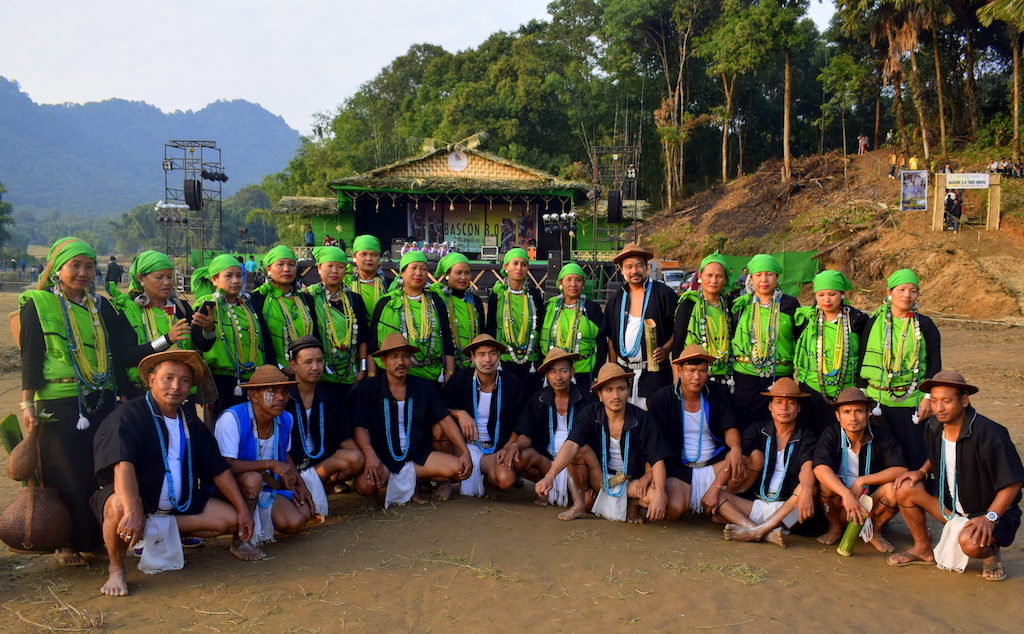
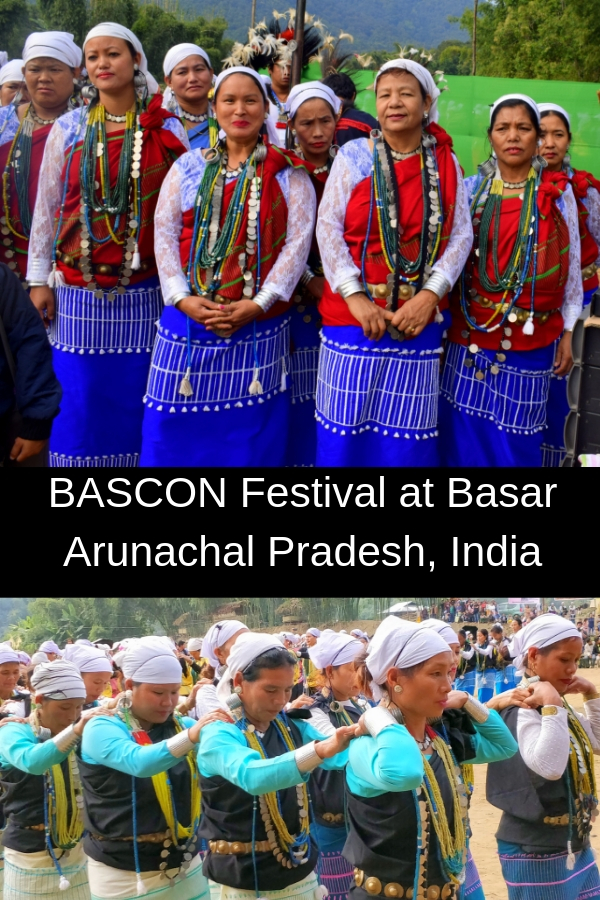
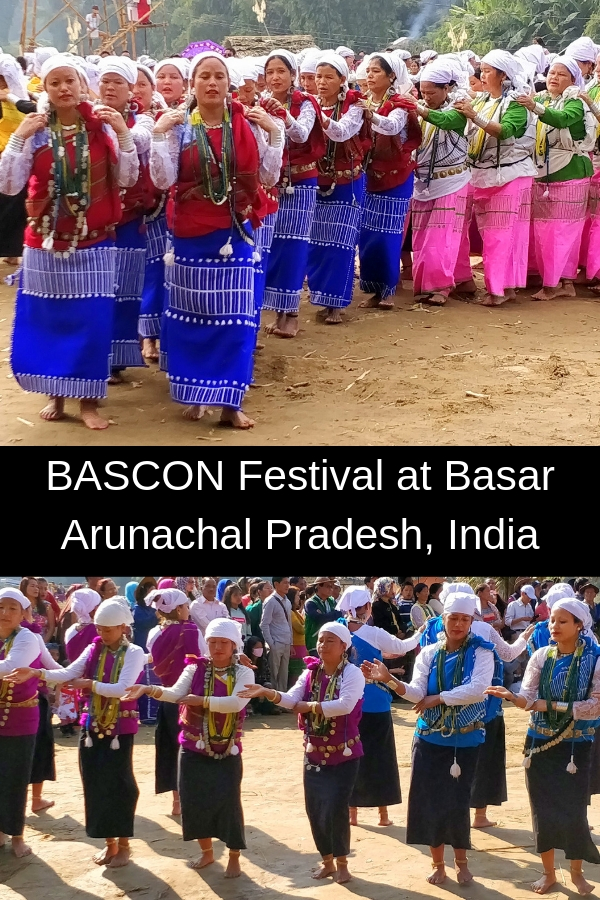
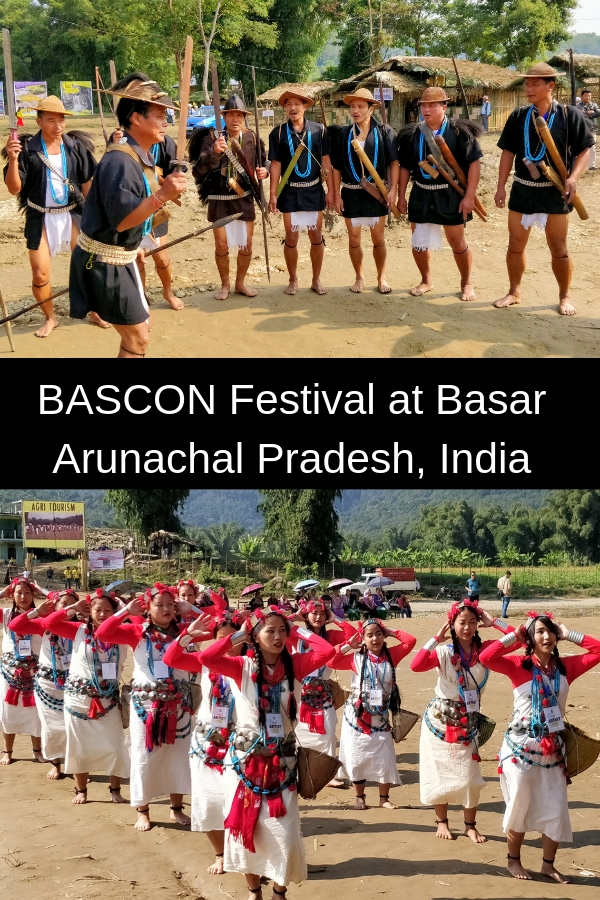
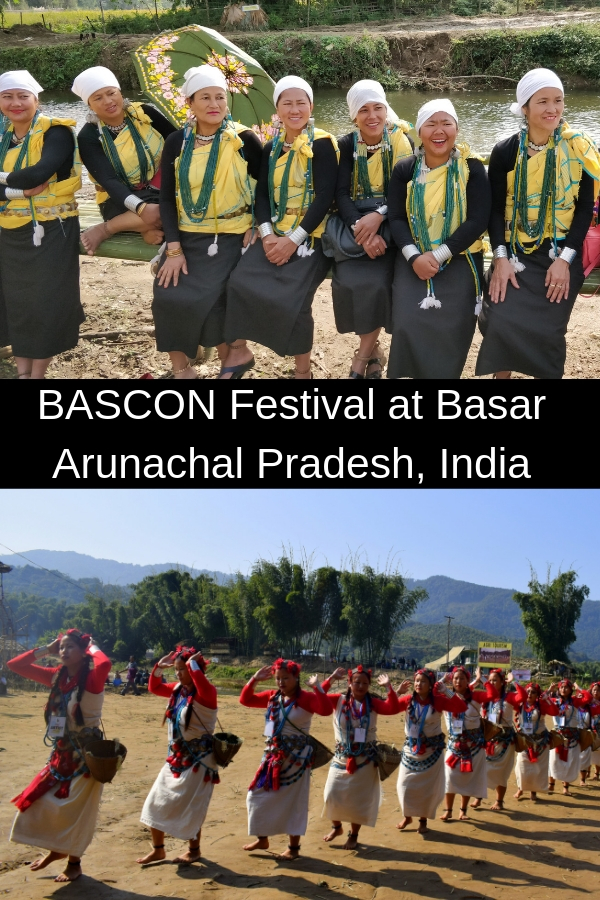




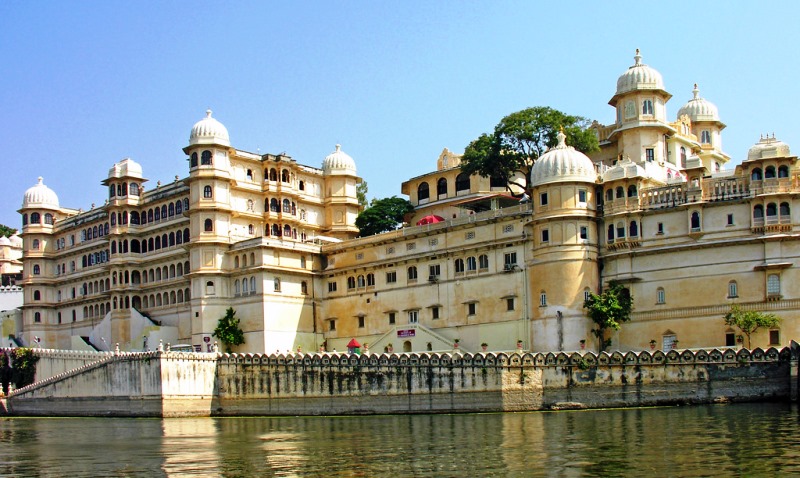
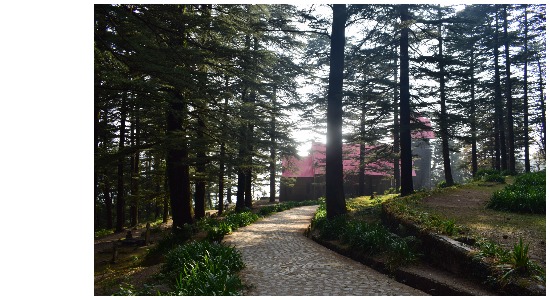
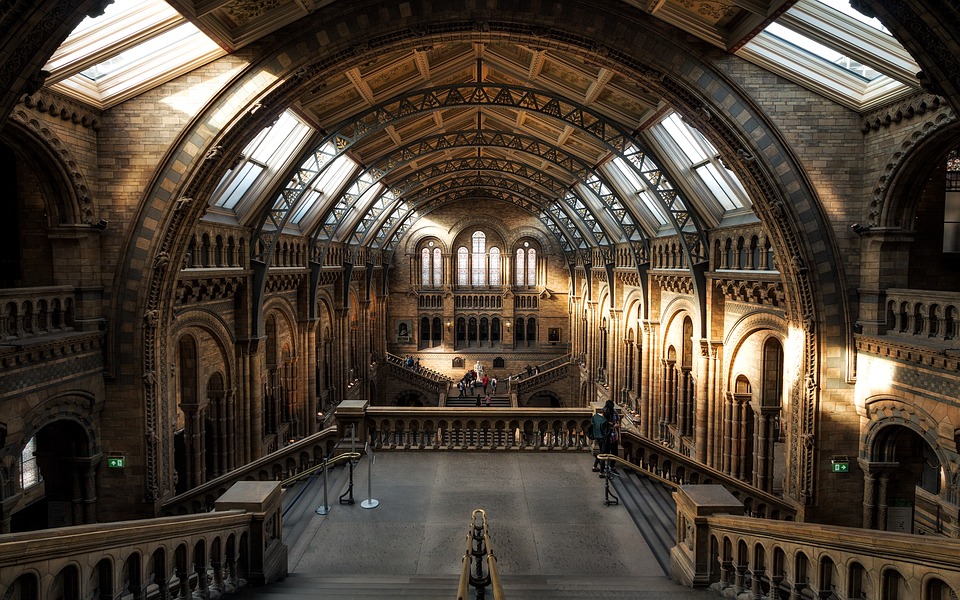
Count me in for the next Bascon.Its a wonderful chance to experience the sights, sounds and taste of Basar.
Great roundup! For me, it is a ready reckoner of info when I need it!
The festival looks so exciting and I love that it was so eco-friendly. I have always wanted to visit Arunachal Pradesh and Basar will be on my list, when I do.
I have not previously heard of the BASCON festival, but it truly looks fascinating as I love learning about local cultures through cultural activities such as this. I will definitely add the Arunachal Pradesh region to my itinerary when I visit India.
The festival looks so vibrant and shows the colours of the state. Just loved the fact that it is an organic event and carrying water in bamboo containers sound a good choice. otherwise, such festivals are great but these end up with a lot of plastic waste
Basar surely sounds fascinating, and BASCAR sounds like a really interesting festival that any traveller would love to be a part of. Great photos, and an excellent round-up of the festival!
I have heard about this festival. Very intriguing and interesting. Nicely detailed article!
As someone who loves to explore new places, your article has definitely caught my attention. A wonderfully written article on Bascon and Basar region.
A glimpse of the festival is so mesmerizing. You are lucky to be part of it. Have done any shopping
I have not been to anywhere North East India yet but Arunachal Pradesh looks beautiful and the festival seems really fun. So many cultural activities to explore. Thanks for sharing.
Basar looks absolutely beautiful. I loved the photos / memories captured from the cultural festival. I bet you had such a memorable experience. Thanks for sharing on your blog.
Wow, This festival looks so vibrant and close to the culture of Arunachal Pradesh. I loved the fact that it had all from sports to folk dance to adventure. I’m sure to attend it in the coming years!
BasCon festival is truly amazing . Eyes sparkle to see such mesmerizing performances. And I was proud enough to see that it was whole of Plastic free zone.
Hey..never knew about such a festival before..thank you so much for making me aware of an Indian culture so rich and so beautiful..
I would love to be a witness this festival. I always wanted to go to Eastern part of India. Thankfully through your pictures felt like a part of it.
I enjoyed reading the entire post. Such a wonderful way to celebrate the rich culture and tradition. Would love to witness the next festival for sure. Thanks for sharing
I have read about the BASCON festival and I always wanted to visit Arunachal Pradesh and Basar for this festival. All the pictures are amazing.
Your post shows that India has so many beautiful places which are still undiscovered by people. The festival at Arunachal Pradesh looks great. Thanks for sharing.
Arunachal Pradesh is very beautiful. I have always wanted to go there but through this blog you have given me a virtual tour of the place.
This post was an eye-opener as I have never heard of this festival before but it is so interesting. Especially, the lion dance so. intruiging.
The festival looks really great . There is a touch a folk dance ,sports and everything.. A full package i must say.. Would love to be a part of that once.
This is such a wonderful post, felt like I teleported to Arunachal Pradesh to the Bascon festival while reading 😍
Loved the pictures too!
Whats the need to visit Basar when we have already visited it through your blog:) So beautifully described. Thanks for sharing this post, one more place we have discovered through your blog.
I am from north east only so I know about this festival…and its good to be a part of this all festival..
Your article have always inspired me to travel and I always see ur fb post for updates. N this article is so honest
The festival looks so amazing. I like that it was so eco-friendly. Would love to visit Arunachal Preadesh some time. All the clicks are amazing.
Wow that’s awesome.. this festival is really worth attending ..I can’t wait to plan my next trip to Basar and experience this sight
I have never been to the north easten states of India and I know I am missing big time. You actually gave me my next summer destination. Thanks.
I’ve never been to North Eastern states. Glad to know more about the culture and people via this post. Gumin Rego Kilaju is doing inspiring work towards environment
It is almost like your blog took me to the place with the medium of pictures 😍😍
I enjoyed reading this blog as I am planning to visit this festival in Basar. Unfortunately many of the important links in your blog does not work. Such as the link to contact GRK. Also, I would like to know around which date in december exactly the festival usually happens ? Any date known for 2022 would be perfect.
Hi Eddy, Basar Confluence 5.0 is happening between 6th to 7th December 2022. The links have been updated.
Here are the links:
https://www.basarconfluence.com/
and
https://www.grkbasar.org/
Facebook: https://www.facebook.com/Basarconfluence